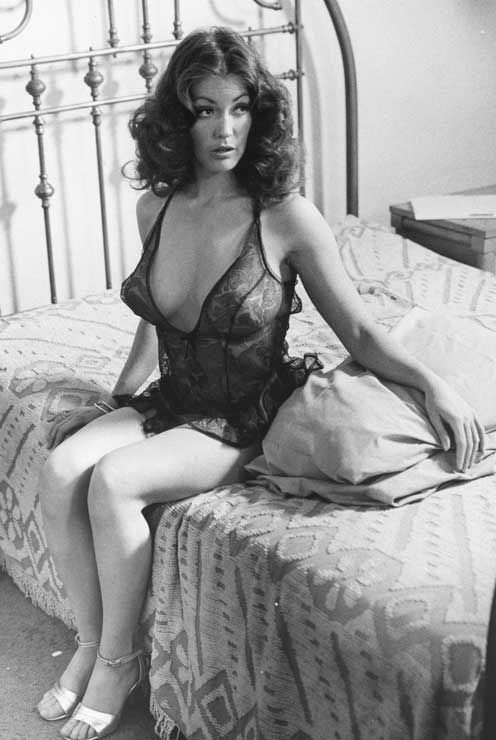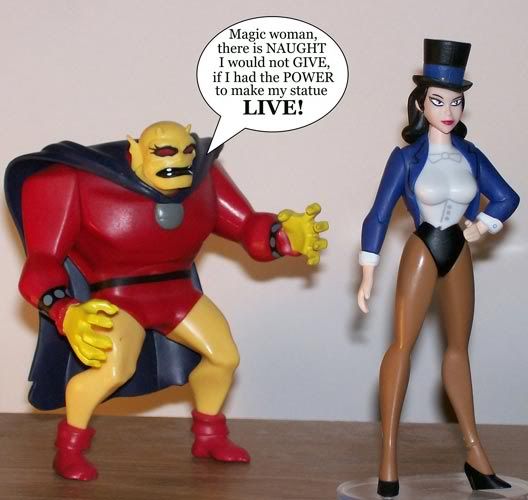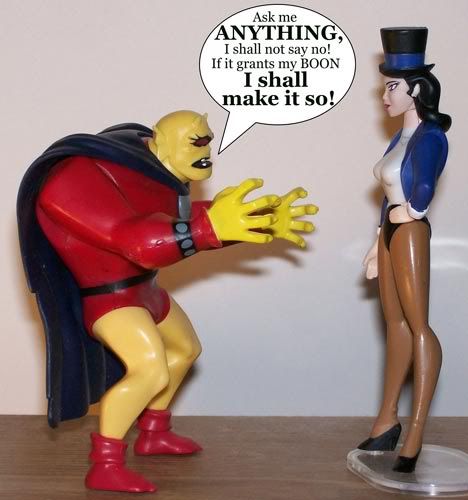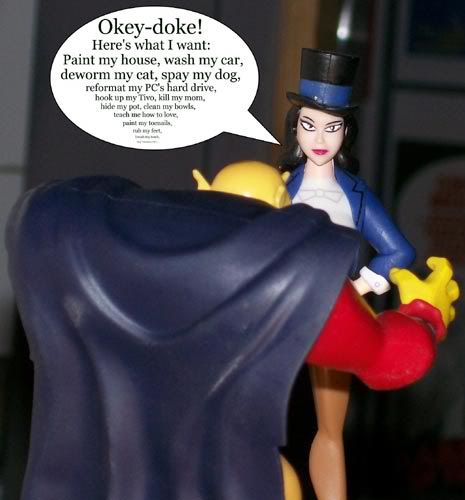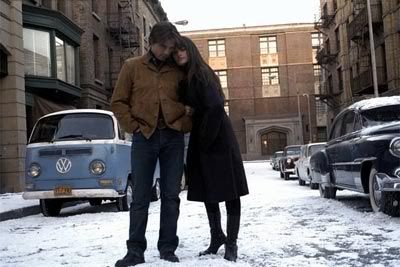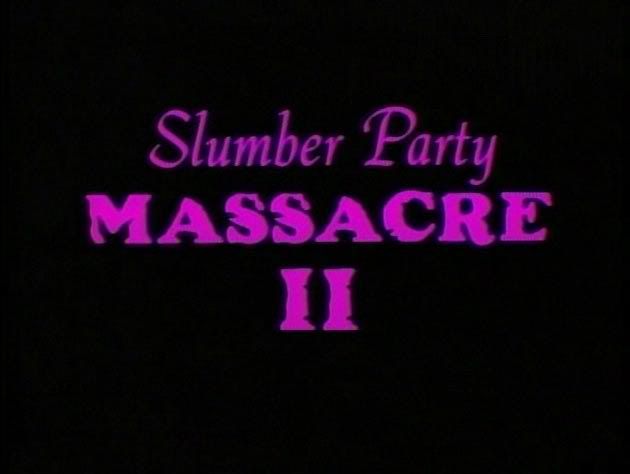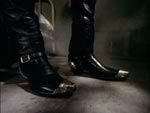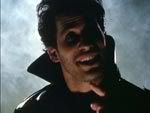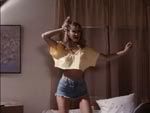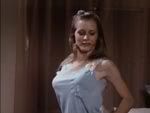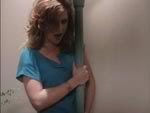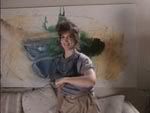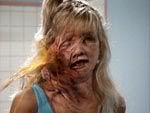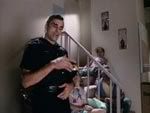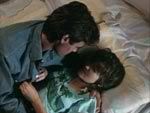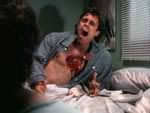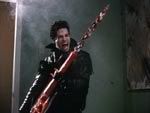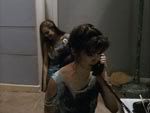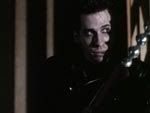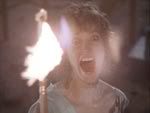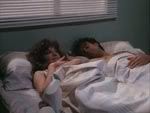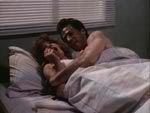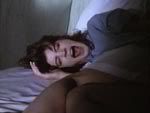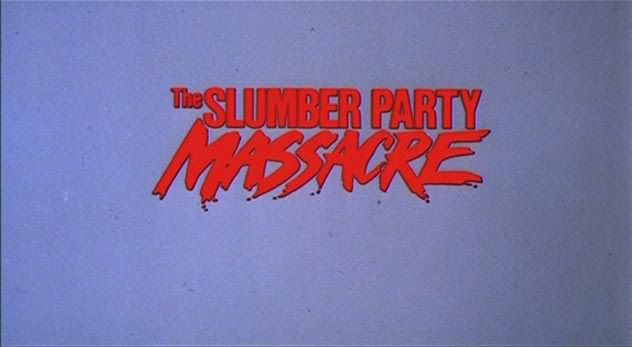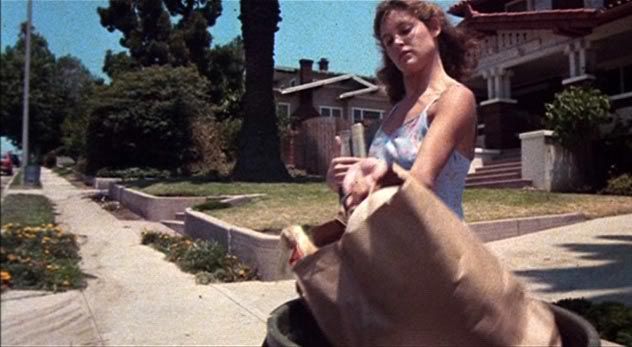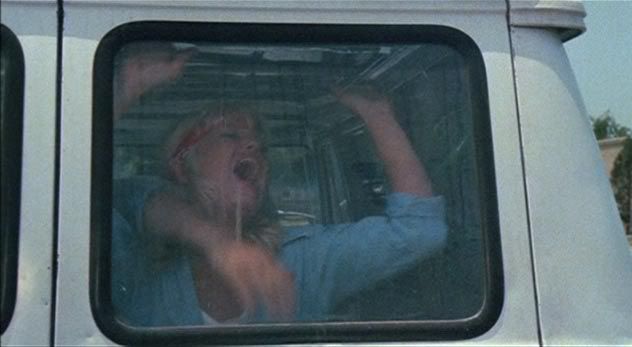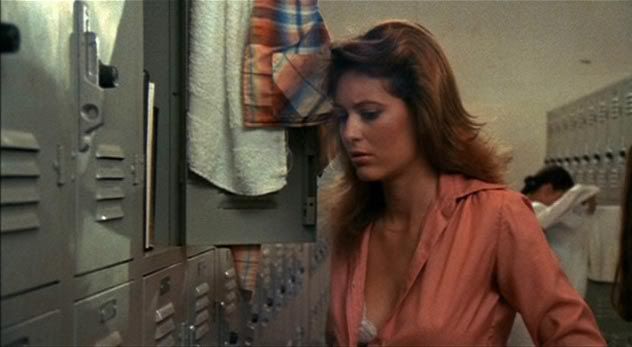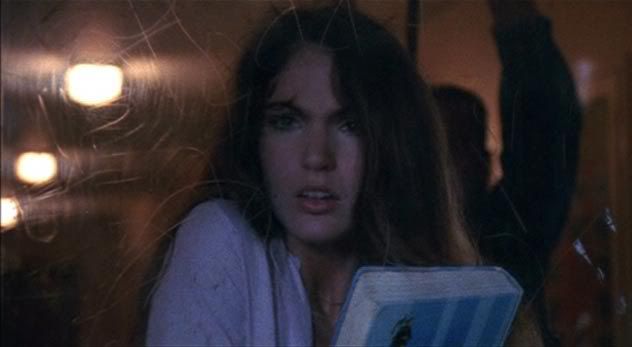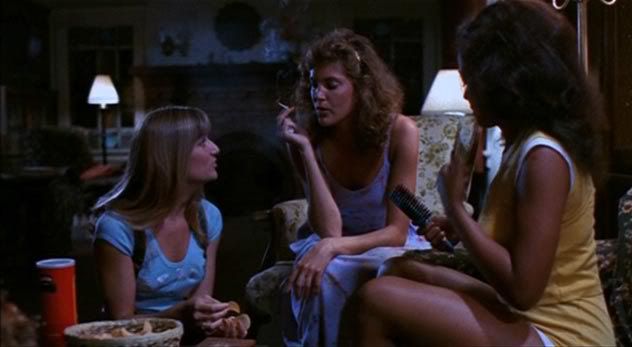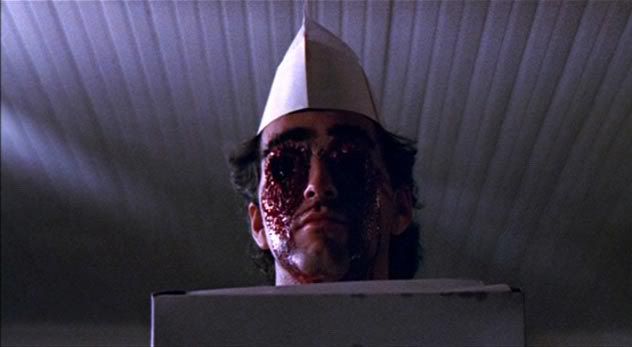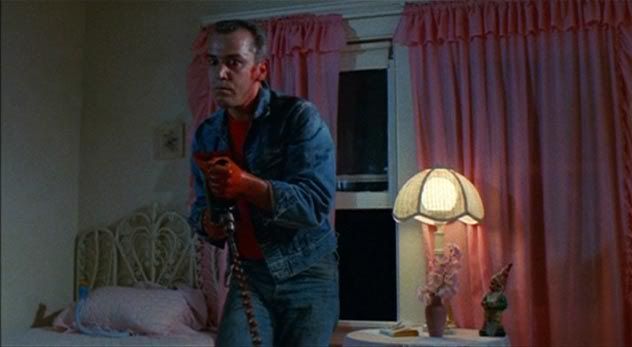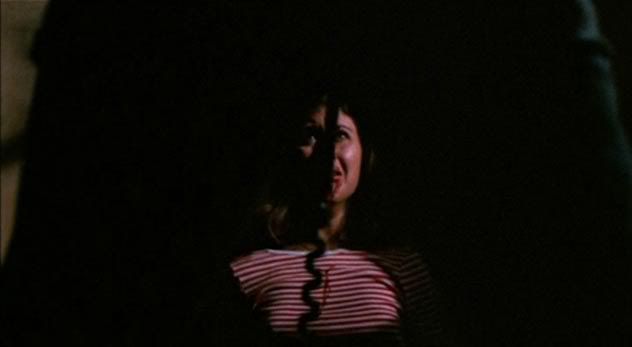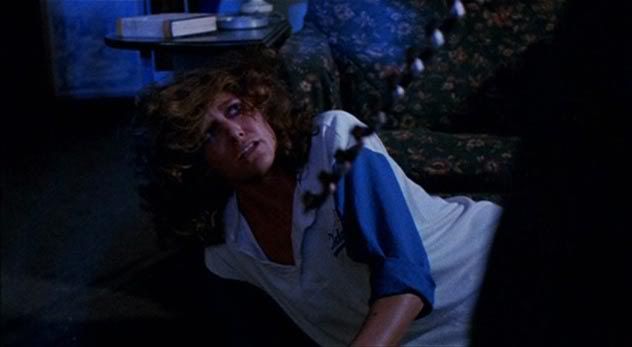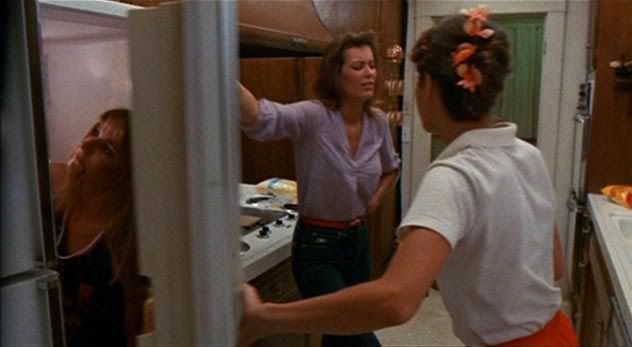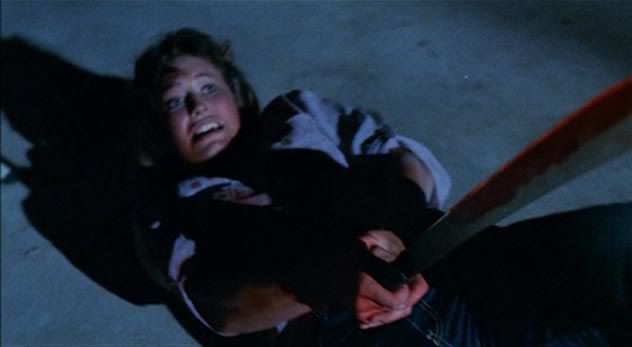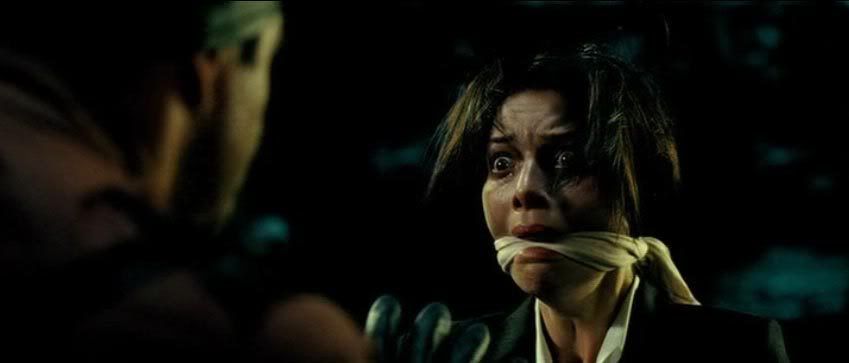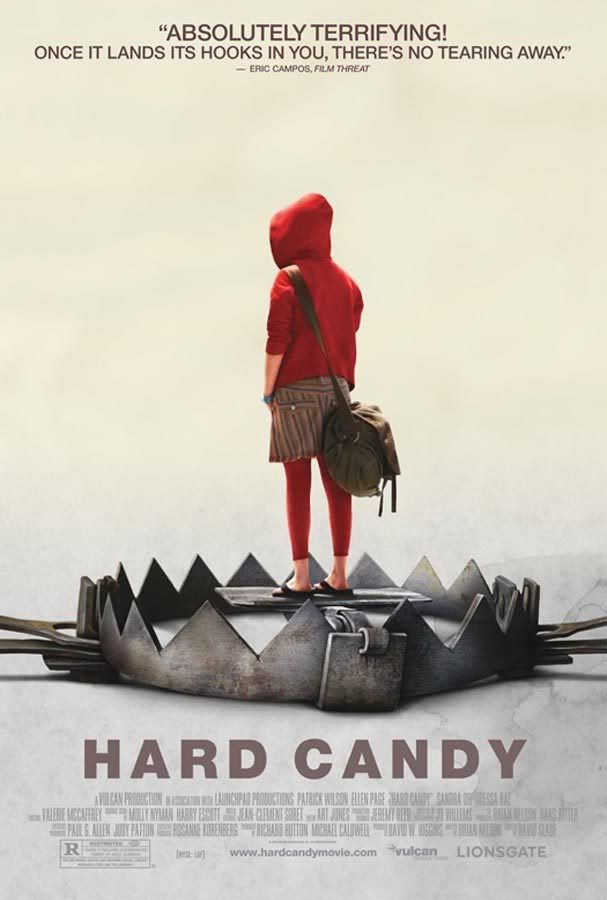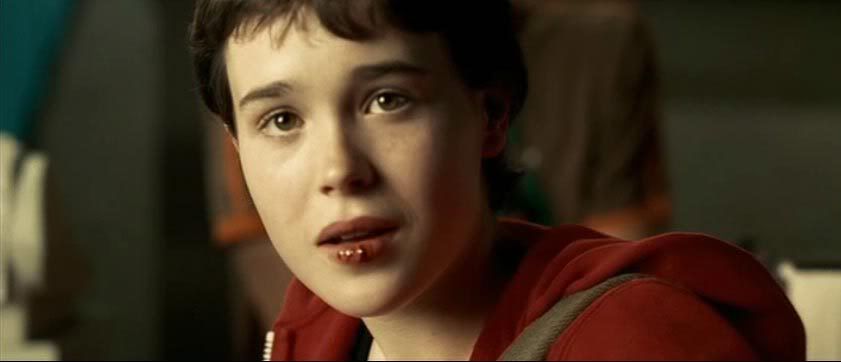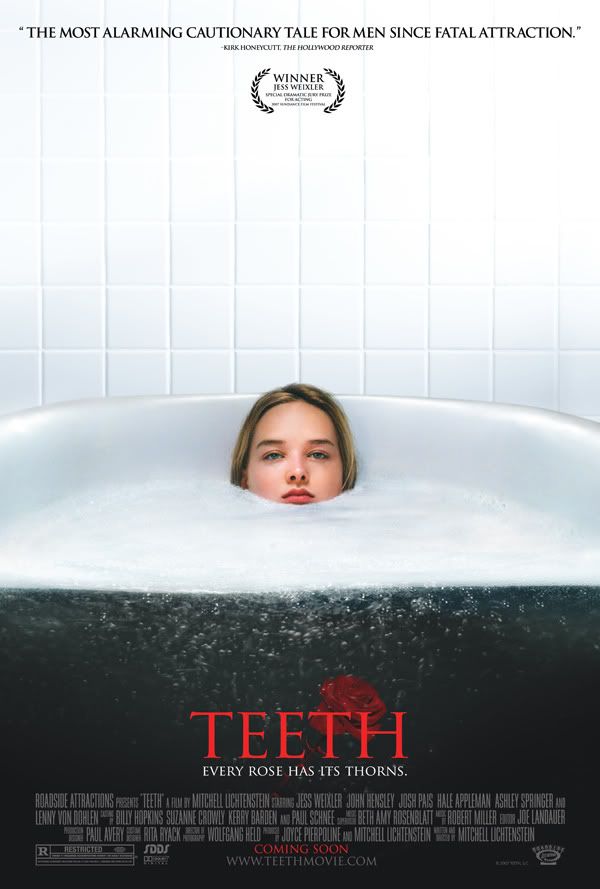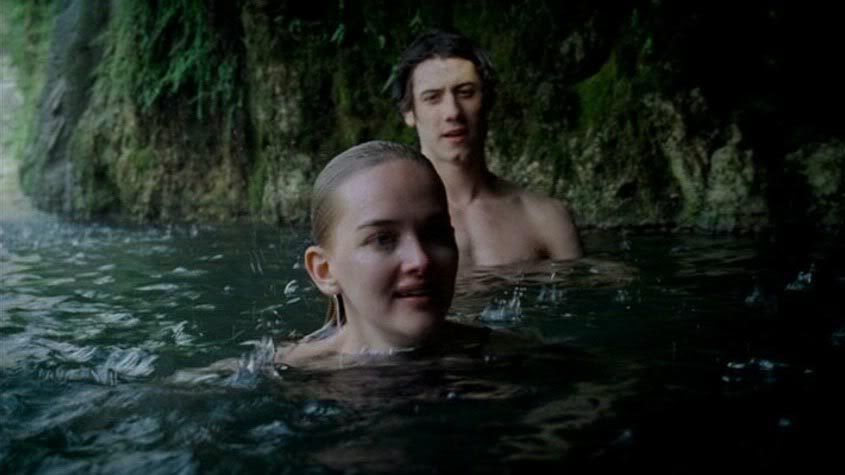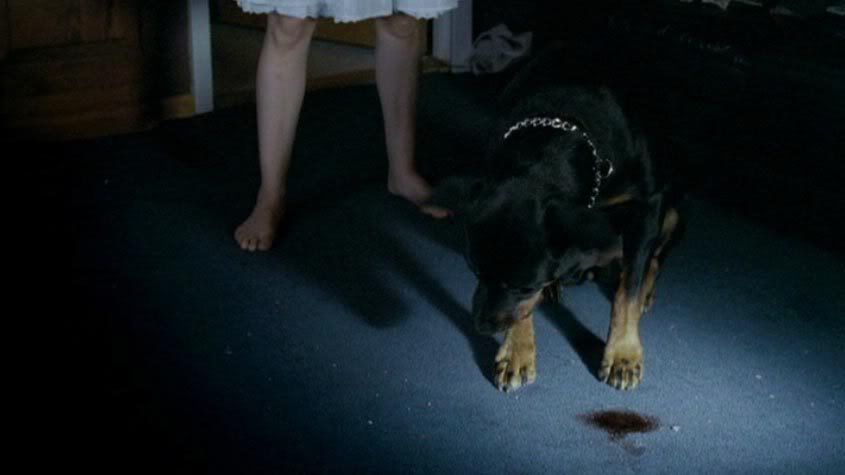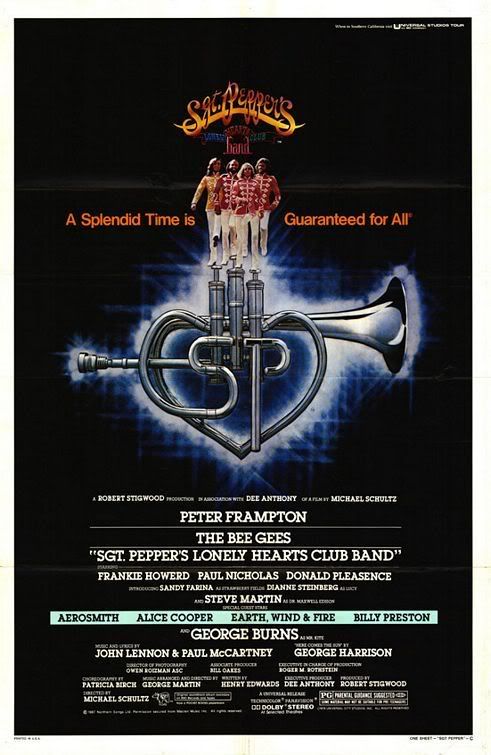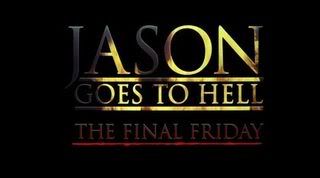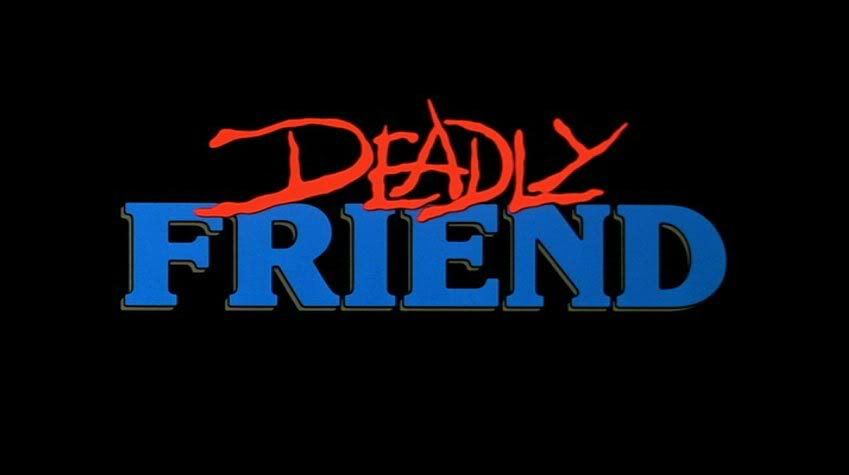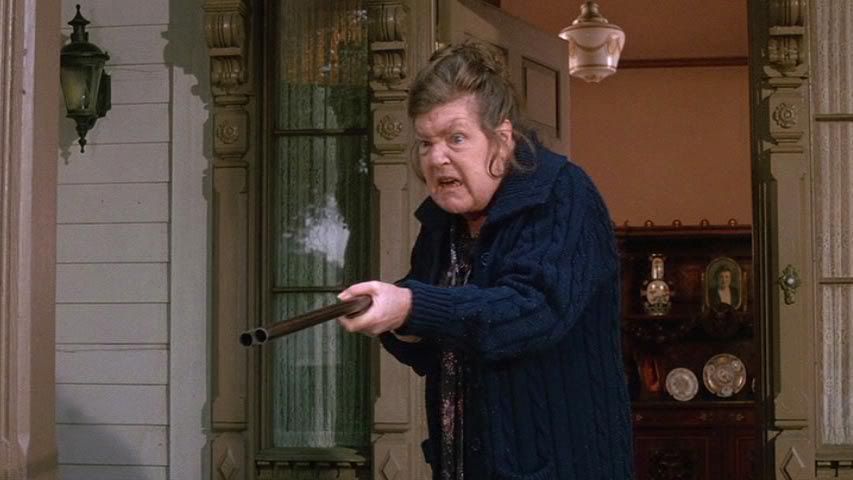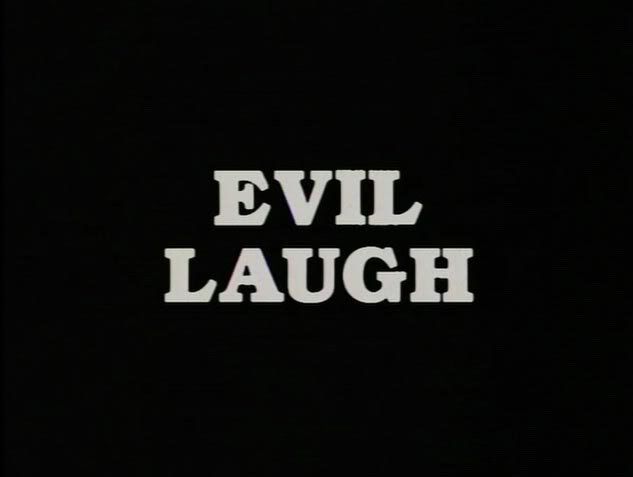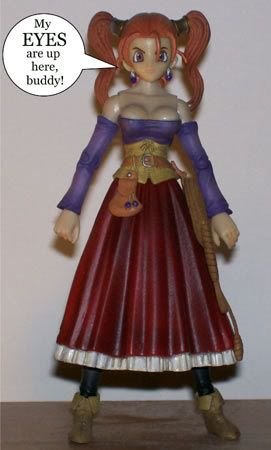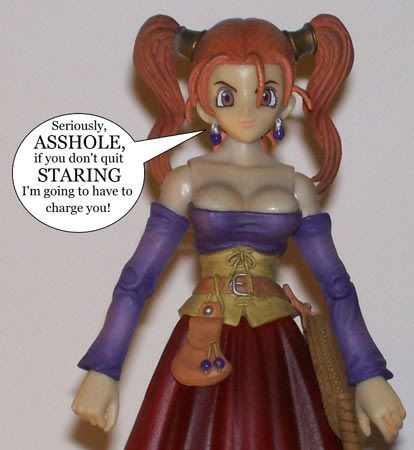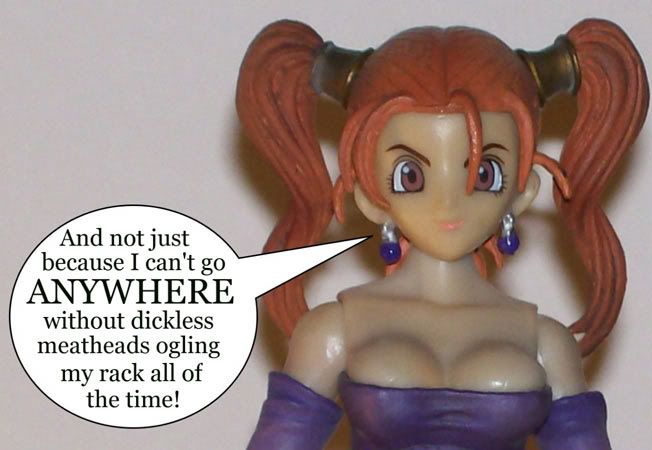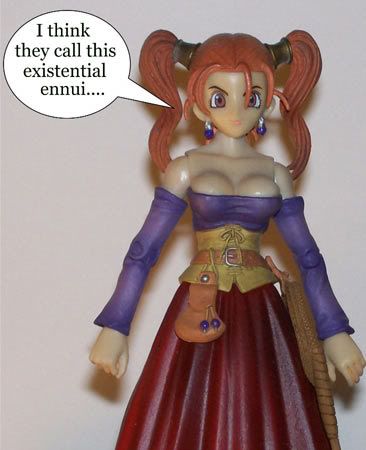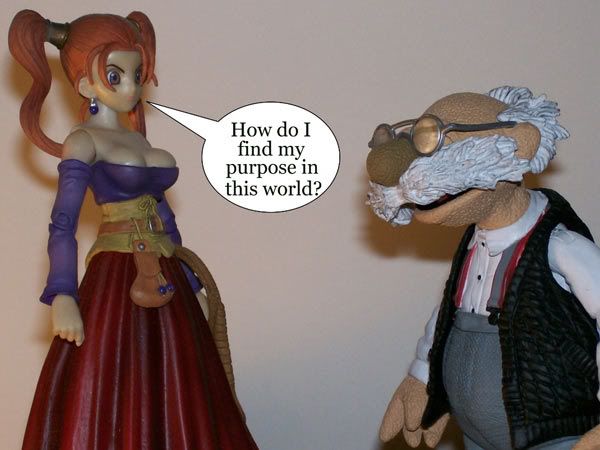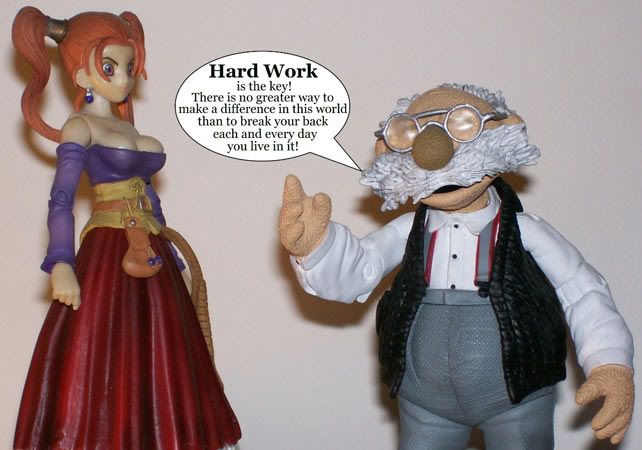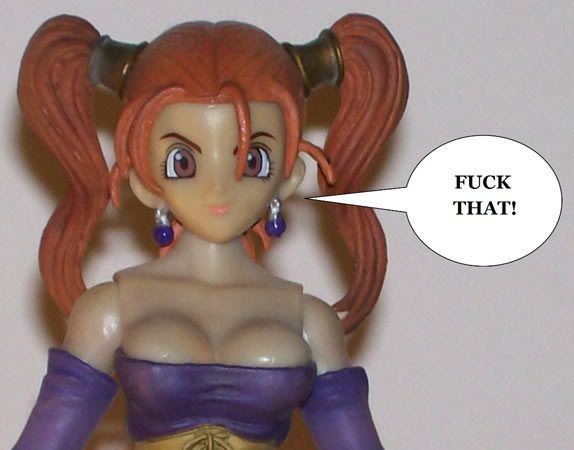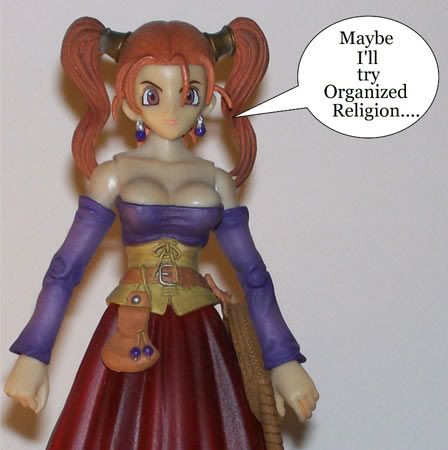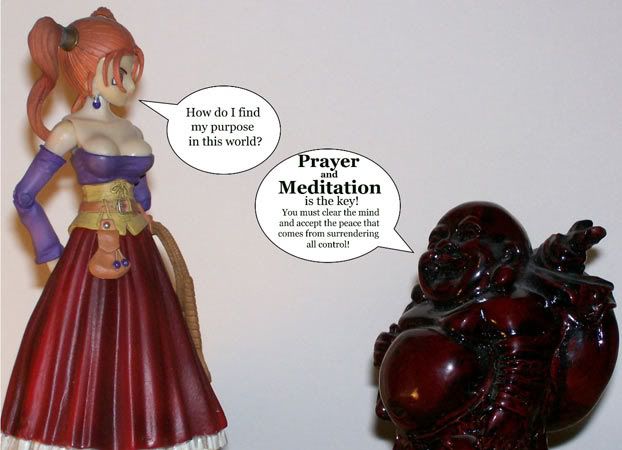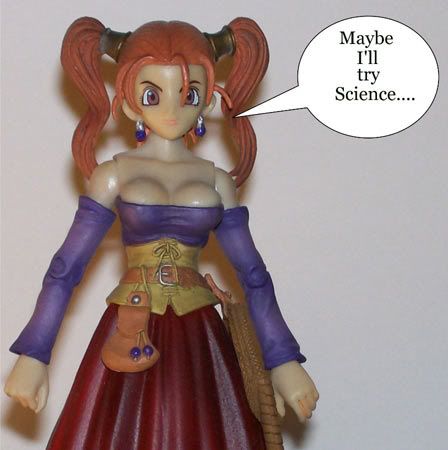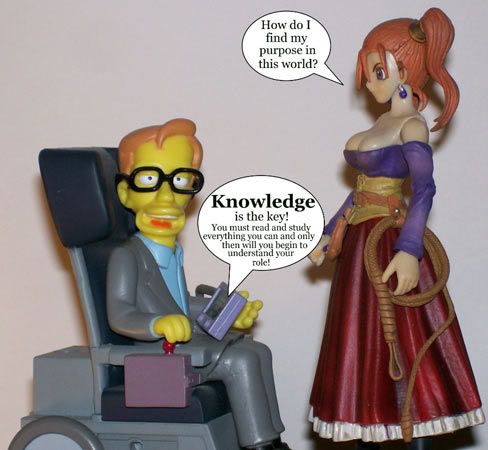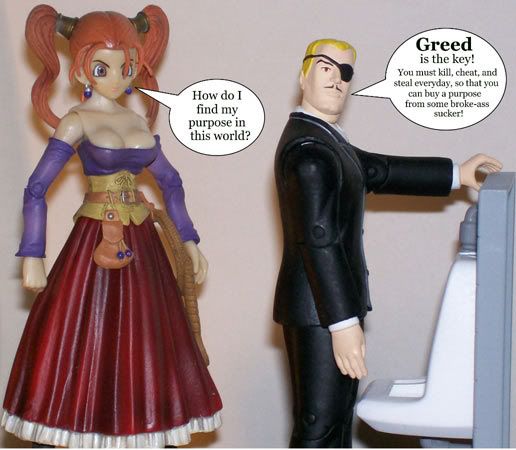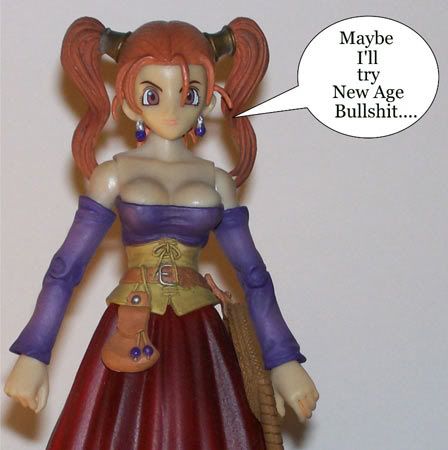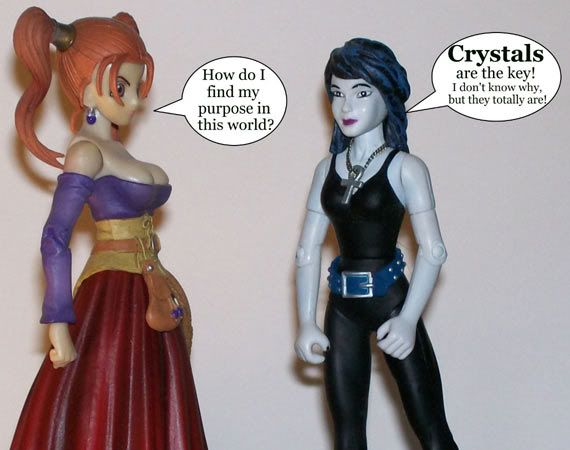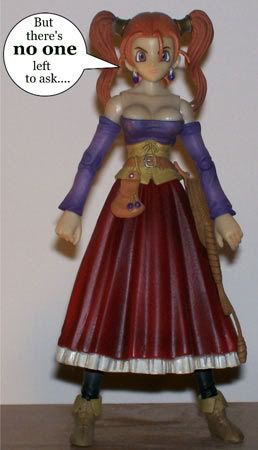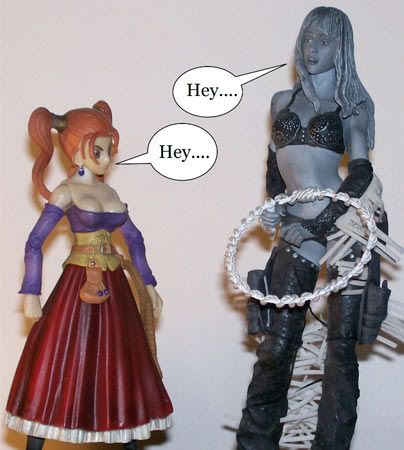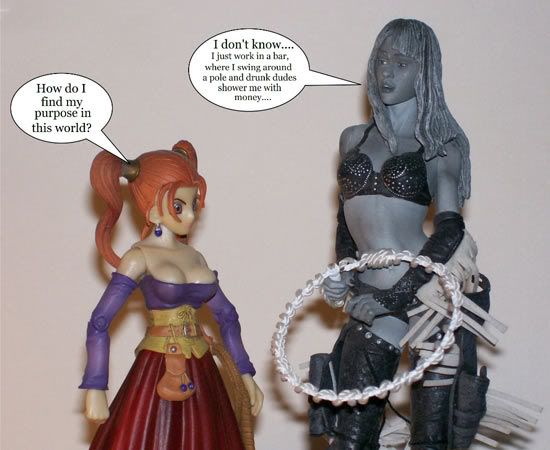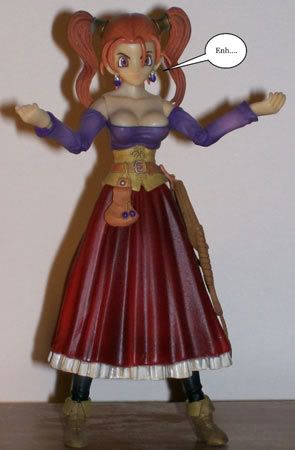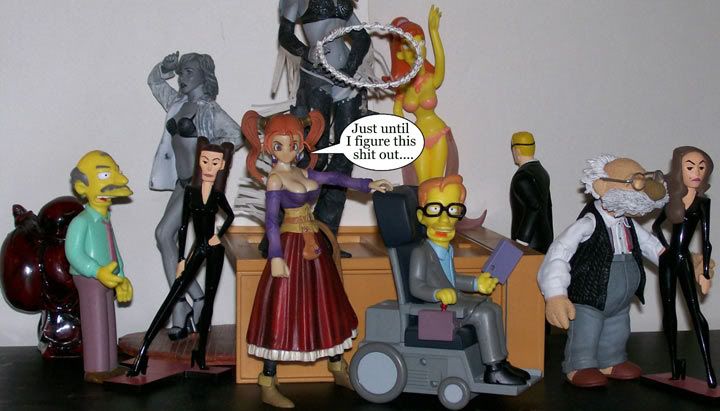The House of Glib Video Review - The Wraith (BRAND NEW!!!!!!!!)
Repost - The Apple
I went to an elementary school whose student population included kids with severe mental and physical disabilities, and though they were kept segregated—for the most part—from us in separate classrooms, every effort was always made to include them in all the regular school events and projects. This meant that they always got the chance to perform at the annual Christmas concerts—both the one that was held for the parents at night and the one held for the students during the day—and though I cannot say how people reacted during the night concert, I do know that their performances always elicited two different reactions from the students during the day show. The first reaction was the one chosen by the crueler, more cold-hearted kids—snide mockery. They would laugh and make fun of how badly those retards sang their songs and scoff with disbelief whenever one of the kids forgot the words to their solo or just plain froze with stage fright. They could not believe that anyone would have anything kind to say about such a pathetic display.
Thankfully the other reaction was much more kind. The more empathetic souls amongst us were willing to ignore the obvious faults in the “special” kids’ performance, because a) we knew they were trying their hardest and b) they were obviously having a lot of fun, so when we applauded them we did so with genuine enthusiasm and not with the sarcastic rhythm of our unenlightened peers.
This brings us to the subject at hand—What Were They Thinking Movies (to be referred to here and in the rest of these posts as WWTTM from henceforth). Like the special needs kids at those Christmas concerts you can choose to watch them with a sense of arrogant superiority and derision or you can instead decide to watch them with a more gentle and forgiving eye and allow yourself to be entertained by the misbegotten spectacle of it all.
You should know by now which of these two options I prefer.
The paradox of being a fan of movies like these is that often you find yourself in the weird position of knowing they are awful but unable to bear it when someone actually criticizes them for their faults. The problem usually is the tone of these criticisms, which is invariably the same one the mean kids used when making fun of the disabled kids’ botched rendition of “Rudolph the Red-Nosed Reindeer”. By pointing out all of the obvious flaws of these films, these unkind critics fail to appreciate their sincerity and joie de vive. Of course they suck, but they suck in fun, original ways that make them a blast to watch over and over again. To not get that means that either you take the world far too seriously for your own good or you’re just a major asshole.
The subject of this post’s discussion is a bad movie—I don’t deny it. Like all WWTTM I can’t believe its producers actually thought it could ever be successful, but having said that, when I tell you that I love this movie I don’t mean it in any sort of hip ironic way. I genuinely love this movie not despite its faults, but because of them—because it is completely true to itself and utterly sincere, even during those moments that are so ridiculous they flirt with unintended self-parody.
I am, of course, talking about:
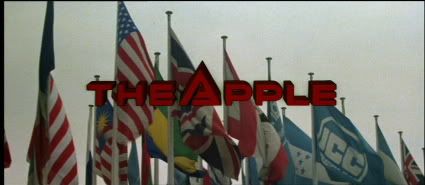
Our humble little movie starts at the WorldVision Song Festival in the year 1994, where the audience is being thrilled to the unheard of degree of 150 heartbeats (don’t ask me to explain what that means, the movie never bothers to tell us) by the biracial duo of Dandi and Pandi, who are on stage performing their hit song “Bim”. 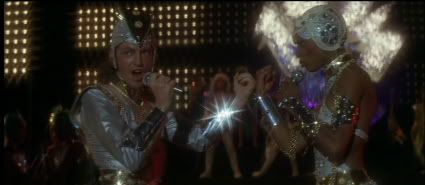
Dandi's the dude and Pandi's not.
It’s an anthemic number that includes such memorable lyrics as:
There ain’t no good!
There ain’t no bad!
There ain’t no happiness!
There ain’t no tears!
There ain’t no love!
There ain’t no hate!
There’s only power!
Bim is the power!
Hey, hey, hey!
Bim’s on the way!
(Repeat)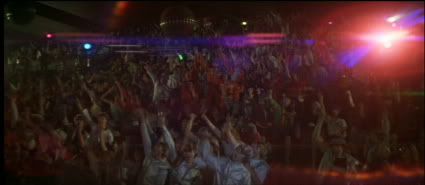
"Hey, hey, hey, Bim's on the way!"
The crowd loves it and who can blame them? Clearly Dandi and Pandi are evil, but damn if the song isn’t one catchy number! As it continues we are introduced to their manager, a thin European-accented gentleman named Mr. Boogalow: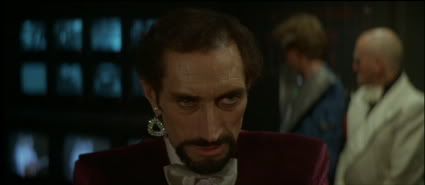
No fair guessing who he really turns out to be!
As well as his number two man, Shake: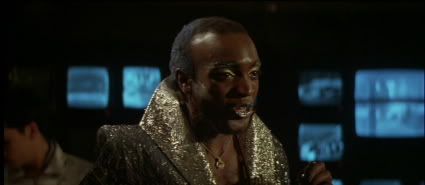
"Hi there! I'm flamboyantly homosexual henchman number one!"
Mr. Boogalow informs his posse that Dandi and Pandi are “magnifique” and that he is going “to turn them into the two biggest stars of the decade”—a statement he makes with such confidence that it suggests it really is only a matter of his desire to do so and not any kind of wishful thinking. But as he and his crew celebrate his belief that the “Bim” song is going to “Take this competition by storm—a-woo-woo-woo!” (No really, he actually says “a-woo-woo-woo“), another duo is introduced onto the stage.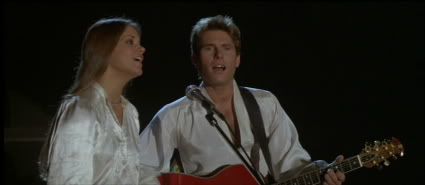
A duo so wholesome they make The Carpenters look like an anorexic nutjob and a self-hating closet-case.
Their names are Alphie and Bibi and they are—as Shake disbelievingly informs his boss—“a couple of kids from Moose Jaw.”
“Moose where?” asks Boogalow.
“I think it’s in Canada,” answers the flunky.
The song these two plucky kids from Saskatchewan choose to perform is a number Alphie wrote entitled “Love Is the Universal Melody”. This surprises the “Bim” folks because everyone knows that love songs are old news. At first it would seem that they are right, as the crowd of teenagers proves initially hostile to the song, but as the wholesome looking duo soldier on the crowd is quieted by lyrics such as:
Alphie:
We belong to one another
We share each other’s destiny
United by our love
We are all children of
The Universal Family
Bibi:
And we are everybody’s brother
And we share the birthright to be free
And deep within your heart
There beats the song of the ages
Both:
The song is the universal melody!
It’s all so beautiful that some in the audience are moved to tears.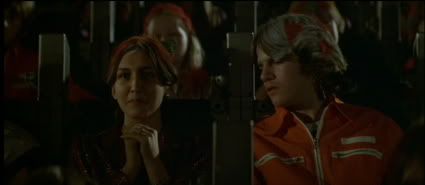
"I guess it is better than the crap you hear on American Idol."
Despite their inexplicably winning over the crowd (inexplicable being the only way to describe it considering a) how bad the song is and b) how unconvincing the crowd’s sudden change of heart really is) Shake insists to his boss that there is no way they can reach Dandi and Pandi’s record of 150 heartbeats, but as he says it, they hit 151. Mr. Boogalow realizes that “Bim” is in danger of losing the competition so he tells Shake to use the red tape. Shake hands the tape over to the engineer and tells him that if anyone sees him use it then he’s “dead, very dead.” The engineer takes the tape and plays it over Alphie and Bibi’s performance. The sounds the tape produces causes the once happy crowd to boo and jeer at the young duo, causing Bibi to break into tears and run off of the stage before the song is over.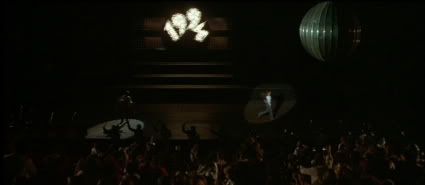
Let's start tallying her faults right now. First, she's a crybaby.
The contest now sewn up and in the bag, Mr. Boogalow is interviewed by reporters from all around the world, whose questions he answers fluently in their native languages. When he finally gets to the reporter from America, a man named Joe Pittman, he is displeased to hear the reporter suggest that the contest was rigged and that it was almost won by another song. Mr. Boogalow takes Pittman aside and tells him that if he reports what he just said, he’ll find himself in the unemployment line. “Joe Pittman,” he tells Shake, “remember that name.”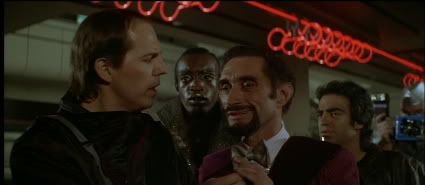
Playing the part of Joe Pittman is the movie's co-lyricist George S. Clinton, who shouldn't be confused with this guy.
Now that the media has been dealt with, everyone returns to Mr. Boogalow’s mansion to celebrate the “Bim” song’s victory. 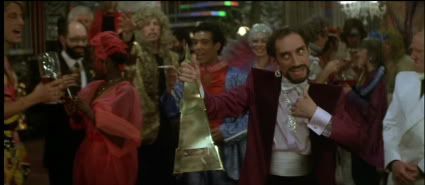
No seriously, it will totally ruin it if you guess who he really is.
And as Boogalow toasts Dandi and Pandi’s achievement, Alphie and Bibi are shown leaving the concert hall, where she is attempting to convince him to accept Boogalow’s invitation to the party now in progress. Alphie doesn’t want to have anything to do with the man, but Bibi—whose dreams of stardom are much more ambitious than her partner’s—insists he could help make them famous and get their songs heard by millions. 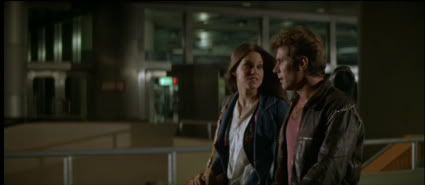
You can now add whiny and craven for stardom to the list.
Meanwhile at the party, Ashley—Boogalow’s merchandising mastermind—introduces his latest invention, the “Bim” mark—a blue triangular sticker that can be worn anywhere on a person’s body.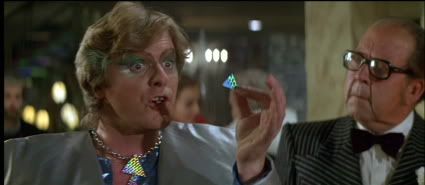
"Hi there! I'm flamboyantly homosexual henchman number two!"
Boogalow is so impressed with this invention he stops the party and tells everyone that—from that moment on—they all have to wear the sticker all of the time to show their devotion to “Bim”.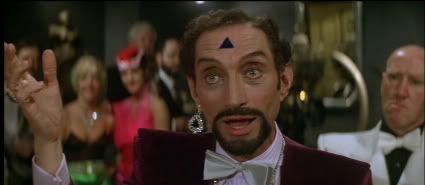
You're guessing right now, aren't you?
Not long after this announcement, Bibi and a very reluctant Alphie arrive at the party. Boogalow quickly separates them, handing Bibi over to Dandi and Alphie over to Pandi. Boogalow offers Alphie a drink, but the young singer refuses it, amusing the guests with the news that he does not drink alcohol. Bibi, however, is more than willing to accept any intoxicant handed her way. This is made clear when Dandi takes her upstairs and offers her a pill, which she—after some coaxing—takes and swallows down.
Write down 'easily corrupted' under 'craven for stardom'.
They then talk for a couple of minutes before Dandi kisses her: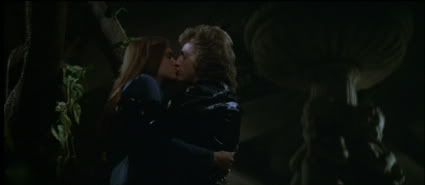
I think that would qualify as 'skanky ho'.
And then informs her in song:
You were made for me
Created for me
And I am your man
You were made for me
It’s fated to be
And you’ll be my woooooo-man!
And though Bibi has known Dandi for less than five minutes and in that time he’s been nothing but an incredible jerk, she finds herself singing back:
How do you do this to me?
Tell me why
The touch of your hand
Has me trembling inside
I don’t understand
This magic I feel
Are you a fantasy
Or are you for real?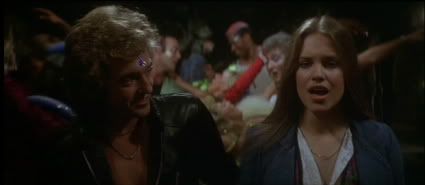
"Explain to me again why I'm singing this song to someone I just met?"
By the time they are finished singing, they are kissing once again, but this time Alphie sees them and puts a stop to this betrayal.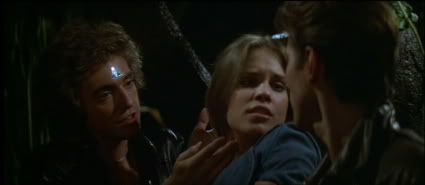
Dude, let her go. She's a--let's check what we have so far--crybaby, whiny, craven for stardom, easily corrupted, skanky ho. Now, aren't you glad we made that list?
Despite having his girl almost stolen from him at the party, Alphie joins Bibi the next day as she goes to meet with Boogalow at his business headquarters. Instead of suggesting that she stop being such a whiny, pill-popping skanky ho, the only thing he says is that they need a lawyer if they are going to consider signing a deal with Boogalow.
“He’s just an agent—he doesn’t own us," Bibi disagrees, before adding, "he’s only taking fifty percent.”
Even when faced with this remarkable logic, Alphie remains unconvinced and the Canadian in him comes out.
“Have you ever seen an American contract?” he asks her. “It’s filled with hundreds of pages of doubletalk—he’ll destroy us!”
“Or make us,” Bibi answers back defiantly.
Since Boogalow is the biggest and most important agent in the world, his lobby is filled with acts desperate to be signed by him. Not limited to musical acts, Boogalow apparently is more than willing to consider taking on clowns, magicians and really cheesy dance acts if the people waiting to see him are any indication.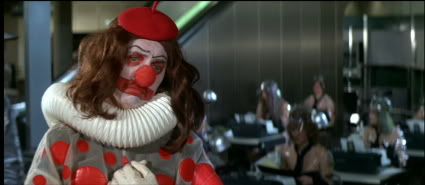
Don't worry. He's smiling on the inside.
Eventually the man everyone is waiting for arrives, just in time to sing a song about his own personal philosophy: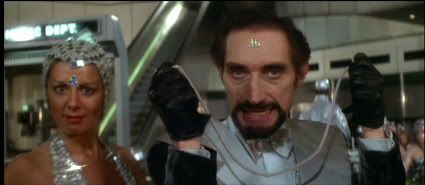
No, he's not really an alien. Now stop guessing!
Like a puppet on a string
Like a monkey on a swing
Man is clinging to the ropes
Of the fantasies and hopes
We are dang-a-ling
He’s so eager to believe
And so easily deceived
Like a baby watching magic
He’s so gullible it is tragic
In a word—naïve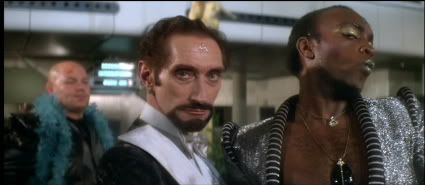
I'm beginning to think he chooses henchmen on their ability to make him look butch in comparison.
He then goes on, with the help of sequined dancers, a clown, a midget, his bodyguards and Shake (all of whom are bedecked with feathered boas) to tell us that:
Life is nothing but show business in 1994!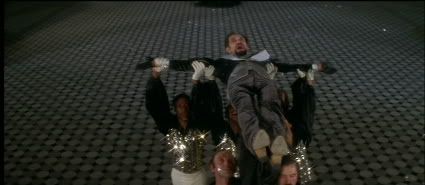
Ha! Fooled Ya! He's definitely not Jesus. Oh shit, that may be a hint. Stop guessing!
While some would hear these lyrics and assume that Boogalow is not exactly someone you would be smart to trust, Alphie (who is still very suspicious) and Bibi (who is pretty much willing to give hand jobs to lepers for a record deal at this point) meet with the man in his office, where he offers them both separate contracts to sign.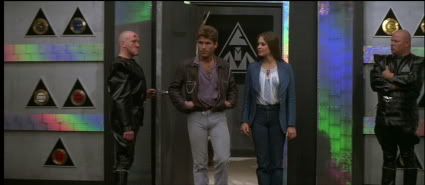
"I may just be a smalltown Canadian boy, but I'm not much impressed with your big city American ways."
Alphie is brazen enough to ask that they be allowed to read the documents before they sign them, only to learn that—even though they haven’t actually recorded it yet—Boogalow has already started selling their first album. “First you sell it,” Shake tells them. “Then you make it,” continues Ashley. “That’s marketing,” the young duo is informed.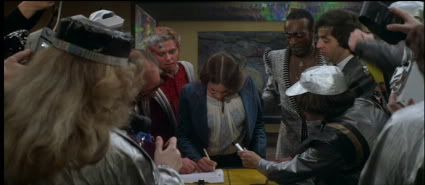
I swear she would willingly blow every guy in that room if they told her to do it. Luckily for her these guys aren't interested in that sort of thing--If you know what I mean. (Hint: they're all gay)
Bibi doesn’t have to hear anymore and eagerly signs the contract. As she does, Alphie watches her and imagines the building starting to shake due to a powerful earthquake. With everyone looking at him like he’s crazy, he reluctantly starts signing the contract, but then he imagines the lights in the room going on and off plunging them into darkness. Someone is sending him a sign and soon Alphie finds himself dreaming that he is in hell, where he and Bibi are dressed as Adam and Eve, while Boogalow is dressed like the Devil and Shake is now a snake.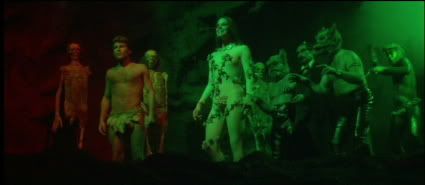
Dude, that's a pretty impressive fig leaf you got there.
Bibi/Eve (rather typically) loves the place, but Alphie/Adam hates it. Boogalow/Devil ignores A/A and focuses all of his attention on the much more receptive B/E. He transforms her fig leaves into a seductive red dress and introduces her to his son Dandi/Anti-Christ. B/D then calls out to Shake/Snake to bring out his “special hors d’oeuvre—the Apple!” 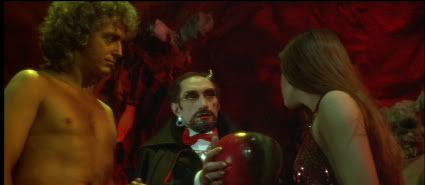
Remember this is only a dream sequence, so anything you see here isn't a clue!
Given the Apple (which appears to be half Red Macintosh and half Granny Delicious) Boogalow then offers it to B/E. “Don’t be afraid,” he tells her in a hushed voice, “taste it.” A/A tries to stop her, but Pandi/Pandi (they apparently couldn’t figure out an analogous biblical character for her) calls out to him and he cannot resist her temptations (Delilah maybe?) The denizens of hell call out to B/E to taste the Apple and are then inspired to break out into another musical number as D/A sings to her:
Magic apple
Mystery apple
Take a little ride
Let me be your guide
Through the Apple paradise!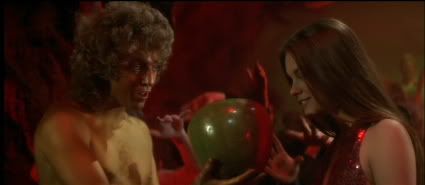
It's both a cheap metaphor and a big piece of fruit!
True to his word he then takes her on a tour of Hell (aka “the Apple paradise”), where he tells her that wanting to try the Apple is:
A natural, natural desire
and then he introduces her to: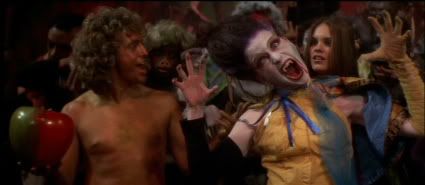
Because vampire rhymes with desire!
An actual, actual vampire!
before urging her to:
Let the Apple set your soul on fire, fire, fire!
because:
You’ll be hypnotized
And you’ll be demonized
And you’ll be paralyzed
So you’ll be victimized
And while Bibi is either too ambitious or stupid (I’m guessing the later) to actually get the message of the song (good things don’t happen to people who taste the Apple), Alphie hears it loud and clear and the dream sequence ends, returning him back to Boogalow’s office where he refuses to sign the contract. 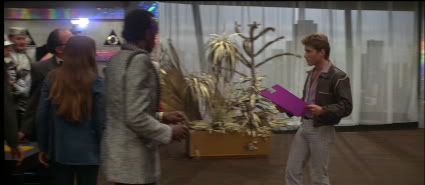
"I may be a smalltown Canadian boy with a vaguely European accent, but I know a bad deal when I see one!"
Mr. Boogalow allows Alphie to leave, but when Bibi tries to follow him, she is stopped by Dandi and Pandi who tell her that Alphie is not her master and that she is free to pursue stardom with them.
Guess who she goes with?
SHE IS SUCH A SKANK! (Sorry, I had to get that out of my system)
But if she has freed herself from Alphie, the song Mr. Boogalow sings over the course of her “stardom-makeover” montage makes it clear that all she has done is turned herself over to another master: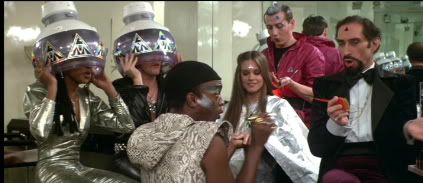
Here Bibi is breaking Allan's First Commandment of Cosmotology--Thou Shalt Not Get Thy Hair Styled By Someone With A Bad Haircut.
Reaching the top
Is such a long hard climb
Millions of people stand and wait in line
Do you think I got there
Being patient and kind?
Yes, I know how to be a master
One really does get the sense that Bibi would have saved everyone a lot of trouble if she just bothered to listen to the lyrics of these songs, but instead she just enjoys the pretty melodies and ignores all the stuff about lying, cheating and stealing to get ahead, not to mention the line about Mr.Boogalow buying souls (could this be a hint towards her agent's true identity? She doesn’t know, because she was too busy getting her hair done to listen!).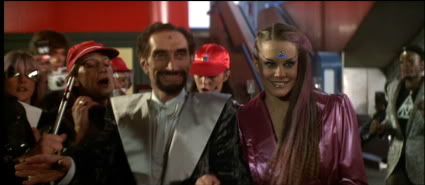
My memories of 1994 are hazy, but I'm pretty certain this wasn't very fashionable.
Her transformation complete, she is introduced to the press who ask her what it’s like for “A girl from nowhere to become America’s number one “Bim” star?” She answers them by saying “It’s frightening, but I put all of my faith in Mr. Boogalow.”
Faith? What a peculiar and highly specific word to use in that sentence.
Finally, after 39 minutes of whining and being altogether skanky, Bibi gets to perform for the whole world, singing a new “Bim” song called “Speed”, which is an upbeat rockin’ ode to America’s devotion to amphetamines: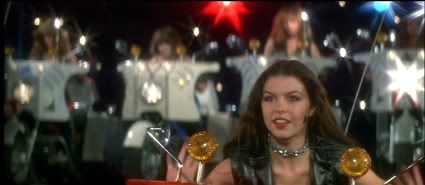
This particular frame has nothing to do with the plot, but it does feature back-up dancer Finola Hughes, who would go on to co-star in an even worse WWTTM musical.
America the land of the free
Is shooting up with pure energy!
And everyday she has to take more
Speeeeeeeeeeeeee-eeeeeeeeeeeedddddddd!
America the home of the brave
Is popping pills to keep up the pace!
And everyday she cries out for more
Speeeeeeeeeeeeee-eeeeeeeeeeeedddddddd!
From New York out to L.A.
Everybody does it her way!
Poppin’ power
By the hour
Speeeeeeeeeeeeee-eeeeeeeeeeeedddddddd!
I won't lie to you. This outfit works for me.
We then cut six months later to a middle-aged Jewish woman who is stopped by a policeman and fined for not wearing a visible “Bim” mark. Apparently in the time that has passed Mr. Boogalow and his “Bim” brand has become so powerful that he now controls the government and is able to enact laws that force everyone in the country to show devotion to him. If you were a suspicious person you might conclude that this “Bim” mark might be more than a tacky fashion accessory but something much more sinister! It turns out that this walking stereotype of all things Semitic is Alphie’s landlady who is constantly reminding him how behind he is in paying his rent, even though—despite her constant nagging—it is clear that she really cares about him and wants him to succeed in show business on his own terms.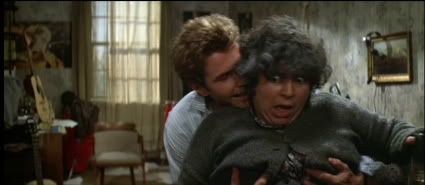
"I may just be a smalltown boy from up north, but I know how to give an older woman a cheap thrill."
Unfortunately, the kinds of songs he writes (sucky love songs) just aren’t what the record companies want, which is all “Bim” all of the time.” Frustrated by his inability to break into the business without selling his soul, he takes time to sit and reflect in a public park, where he is fined for not wearing a “Bim” mark. He tears the ticket up, just as the public address system announces that it is four o’clock, which means—as part of the government’s national fitness program—all citizens are required to stop whatever they are doing and perform the “Bim” dance, an
edict that includes both doctors and patients: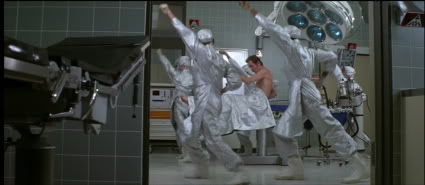
That's what I call a hardcore exercise ethic.
As well as firefighters, the elderly and even--most dastardly of all--nuns: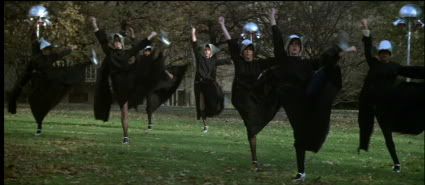
Is it wrong that this really turns me on?
And in the end we discover it is Bibi herself who is singing the song everyone is legally required to dance to.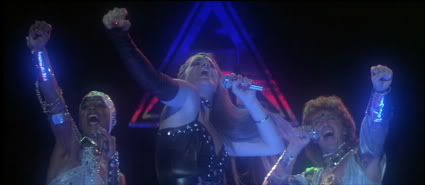
"We are so evil! So evil, evil, evil!"
Alphie happens to be close to the concert hall where Bibi performed the song for the masses, so he is able to watch as his former partner is swarmed by her fans when she leaves to get into her car. Alphie calls out to her and—recognizing his voice--she calls out his name, but before they can reunite, Alphie is grabbed by her bodyguards, who then proceed to smack him around like a little bitch. 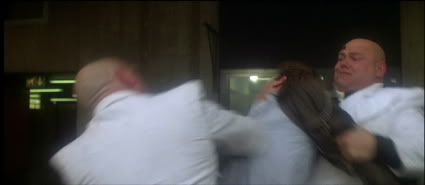
"I may just be a smalltown boy from up beyond the 49th parallel but I still bleed like everyone else."
Seeing Alphie seemingly does something to both Bibi and Pandi. Pandi, now out of the spotlight, seems to have grown tired of the “Bim” lifestyle and Bibi wonders in song just what she gave up when she chose Mr. Boogalow over her hometown boyfriend: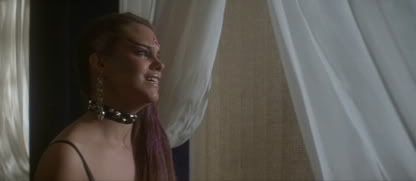
Even skanks have feelings. Who knew?
Allll-phie
Where are you now?
Will I ever see your face again?
You tried to set me free
Knowing all along that your love
Was no match for their evil
You came after me
And because their souls are connected (or something like that) Alphie hears her musical lament and joins her in song as he walks, bruised and battered through the rainy streets on his way back home:
Beeeee-beee
Can you hear me now?
They got me with my back against the wall
There’s no place left to turn
Should I go on living for the memory of your love
Or should I end it all?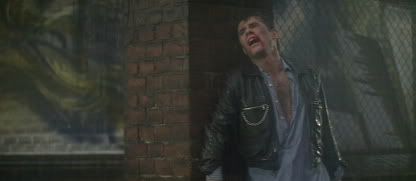
"I may be just a stupid hick from another country, but I know enough about clever choreography to put my back to a wall when I sing 'They got me with my back against the wall'.
He continues:
Cry for me
If there are really angels to hear
Cry for me
Let the heavens rain down
With your tears
Where has all the pity gone?
I sing my song
To deafened ears
Severely weakened by his injuries, Alphie loses consciousness and only awakes several days later to the sight of his worried landlady, who serves him her homemade chicken soup. As she spoon feeds him, she convinces him that if he still loves Bibi he has to try and find her and win her back. He’s reluctant at first, but finally he decides to go to Mr. Boogalow’s mansion and fight for his love. But the “Bim” folks are wily beasts, so instead of beating him up again, they welcome him into the house where Shake hooks him up with Pandi, who—for the moment at least—seems to be back on track with her peeps.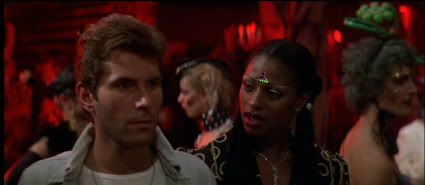
"I may just be an asshole from Moose Jaw, but I likes that hot chocolate flavour!"
The former teetotaler accepts a drink this time, shocked to see that his waiter is Joe Pittman, the reporter who once asked Mr. Boogalow an uncomfortable question—“Bim” now apparently controls the media as well!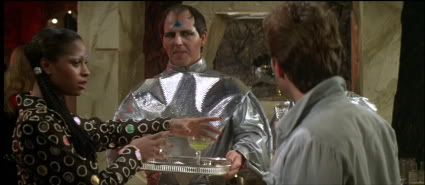
"This is my punishment for writing the words you keep singing."
It turns out that this is the wrong time for non-drinker Alphie to get on the alcohol train, since his beverage is apparently laced with some sort of drug that first causes him to see his host as the Devil: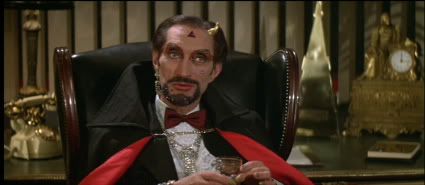
Fuck it. If you haven't guessed who he is by now, you're better off watching less complicated movies starring Pauly Shore.
And then to see the rest of the guests distorted into a cheap camera effect: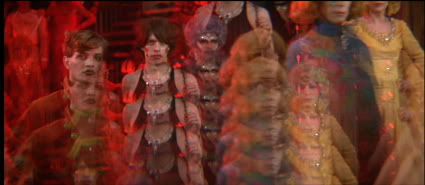
"I may just be a guy who never appeared in another movie, but this is some funky trip!"
Having gotten Alphie into this disoriented state Pandi seduces him with a song:
I’m coming
Coming for you
Now, I’m coming
Coming for you
Let me tempt you
And tease you
And hold you
And squeeze you
And feel every inch of your love
Let me show you
Things you have never dreamed of
Oooooh-ohhhhhhhhh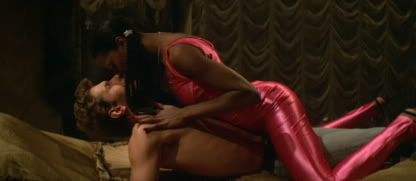
"I may just be--mmmphmphmmmmmmmphhhhhhhhh."
Not even aware of where he is, Alphie does the nasty-nasty with Pandi as he hallucinates a dance sequence featuring couples performing choreographed routines of coitus: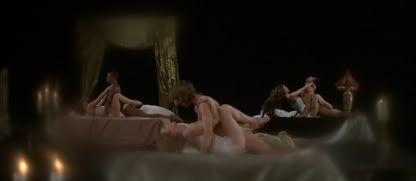
I should have gone into dance instead of doing this stupid writing thing.
Pandi is still tumescent as Alphie finally figures out what is happening to him. He escapes from his bed and looks into another bedroom only to find Bibi in bed with Dandi. 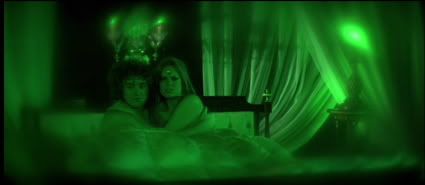
Skanka-skanka-wah-wah!
“Who are you?” she asks him coldly.
“Bibi!” he cries out to her.
“What do you want?” she asks disdainfully before telling him to “Go away.”
Dandi is so delighted by the spectacle that he gets out of bed to watch as Alphie flees the mansion, his heart broken.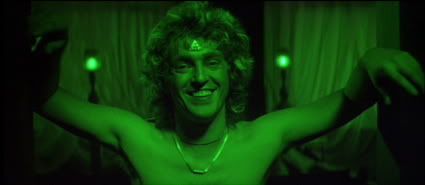
Hey Carmen, am I crazy or does this guy kinda look like Mark if Mark had a bad 80s haircut?
Apparently some time before he could get home, Alphie passed out in the middle of the park, where he is awakened by a guy who looks an awfully lot like god: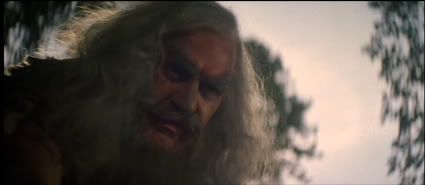
Charleton Heston can go fuck himself.
But who is really just the leader of a group of hippies (and by hippies I don’t mean a bunch of folks who believe in peace and love, grow beards and listen to the Grateful Dead, but actual flower children who somehow managed to survive unchanged over the past two decades). Hippie Leader (as he is named in the credits) offers to adopt Alphie into his fold and Alphie, being only a beard and change of outfit from being a hippie himself, accepts.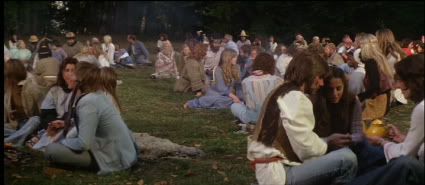
If hippies who looked like this were extinct in 1980--when this movie was made--where did they come from in 1994?
Meanwhile back at “Bim” Manor, Bibi wakes up and is horrified to find out that her vision of Alphie from the night before had not been a dream. Pandi, once again back to her rebellious ways, convinces Bibi that if she really loves Alphie, she should leave her “Bim” stardom behind and find him.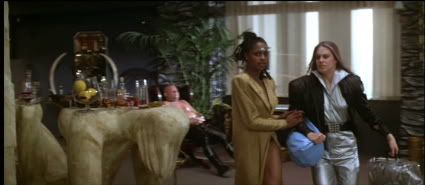
"Girl, I totally scammed your man last night. Holler!"
At first Shake tries to stop her, but he relents and allows her to leave, arrogantly assuming that the power of “Bim” is so strong she will not be able to escape its grasp no matter where she goes.
As Bibi leaves, Pandi goes upstairs and explains to us through song the reason for her sudden change of heart: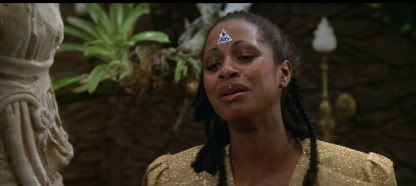
"I swear this sudden turn of character makes sense and it isn't just an awkard plot device!"
Something’s happened to me
Suddenly I’m not the same
I was caught in a maze
So blinded and dazed
I couldn’t remember my name
It’s Pandi. Rhymes with Dandi. She continues:
I was so empty
And numb inside
Now I’m full of feeling again!
I’m laughin’
I’m cryin’
I’m finally alive
I see the light
I feel it all around me
Healing me
Revealing me
I thought that I had died
Looking for Alphie, Bibi first tries his apartment, but his landlady tells her that he doesn’t live there anymore and is now hanging out under a bridge with “all those old bums.”
“Go find him,” the landlady urges her, “he needs ya.”
As she makes her way to the bridge the old bums live under, Bibi joins Pandi in a chorus of the I’m-not-the-skanky-ho-I-used-to-be song, and comes across a guy who looks an awful lot like god, but who is really just one of the old bums the landlady was talking about.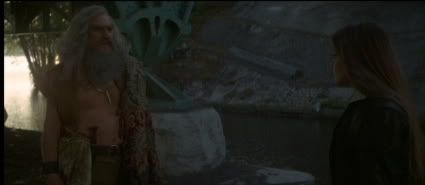
"You're Bibi? Wow, I guess I wasn't expecting such a skank."
The man knows who she is and takes her to meet the man she is searching for. He takes her to the caves where all of the hippies live and there—at long last—Alphie and Bibi, those two crazy kids from Moose Jaw, are reunited. As they stare into each other’s eyes, Alphie removes her “Bim” mark, symbolically freeing her from Boogalow, and they hold each other lovingly as the Hippie Leader sings:
Child of love
Child of laaa-haya-ove!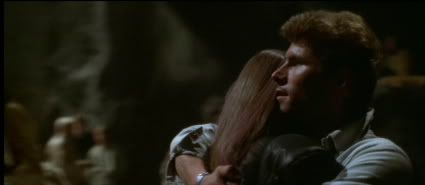
This scene did not make me cry! Something just got into my eye and made it water.
Cut to a year later and the Hippie Leader is still singing, but he is now joined by everyone else, including a bearded Alphie, a flower-powered Bibi and their small child, but before it can even really begin their sing-a-long is interrupted by the po-po.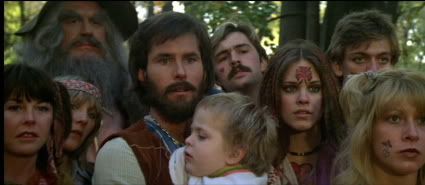
"I may just be an unconvincing actor in a bad musical, but even I deserve a more realistic looking fake beard than this!"
It has taken a year, but Mr. Boogalow has finally found Bibi and wants her arrested for owing him the $10 million he lost in potential earnings when she walked out on her contract. As the police arrest all of the dirty hippies and start taking them away, both Alphie and the Hippie Leader look up to the sky, as if they are expecting someone to arrive.
“It’s going to be all right,” Alphie assures Bibi, “I know he’s coming.”
“Who’s coming?” she asks him.
“Mr. Topps,” he answers cryptically.
“Who’s Mr. Topps?”
“Don’t worry, just trust me. I know he’s coming,” Alphie insists.
And his faith proves warranted when everyone turns to see a golden Cadillac flying in the sky:
You know what? Even in 1980 this would have been considered a crappy special effect.
The car stops in mid-air and out walks a man with long blond hair dressed in a white tuxedo: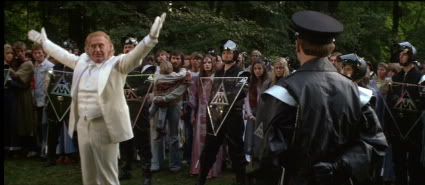
I think the white suit pretty much gives it away.
“Who the hell are you?” shouts out a belligerent police officer.
“They call me Mr. Topps,” the man answers him confidently.
The officer orders another officer to arrest the man, but before the guy can make his move he finds himself frozen in place and paralyzed from the waist down. Mr. Topps then tells Alphie and Bibi to come with him: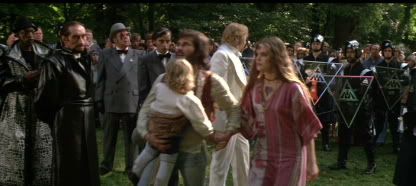
"I'll tell you how I knew about this Mr. Topps guy--who I weirdly never mentioned before--when the movie is over."
But before he starts walking. Mr. Topps is interrupted by Mr. Boogalow.
“Hey, Topps, what do you think you are doing?” asks the sinister agent.
“I’ve had enough of you,” Topps answers him. Boogalow’s lawyers then insist that they have a warrant for Bibi's arrest, but Topps makes it vanish with a snap of his fingers. He then invites all of the hippies to join him and en masse they start following Alphie and Bibi on the invisible stairway to the great gold Cadillac in the sky as a heavenly choir sings “Love is the Universal Melody”.
Despite the fact that she apparently has stayed with the “Bim” folks for the past year, Pandi is sufficiently reformed enough to be allowed to join the hippies, while the rest of her wicked compatriots can only watch with disbelief.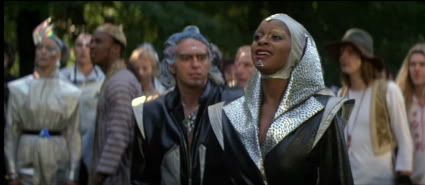
Shouldn't she at least take off that "Bim" thing first?"
“…Where do you think you’re taking them?” Boogalow asks his golden-haired counterpart.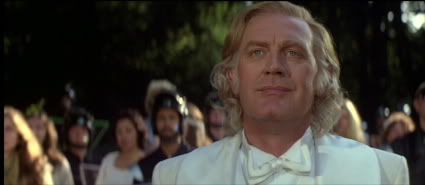
I want to get a wig that looks like that. I think I could really pull it off quite nicely.
“I don’t know yet,” Topps admits. “I’m looking for a new place.”
“A new planet?” wonders Boogalow.
“If I can find one free from your pollution,” answers Topps.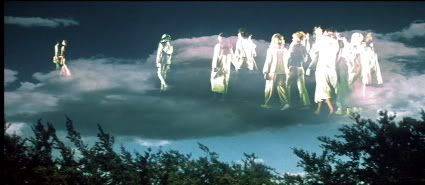
I have no snark left that would properly match the cheesiness of this image.
“Don’t tell me you’re going to start all over again,” Boogalow says snidely.
“Yes,” Topps answers sincerely, “but this time without you.”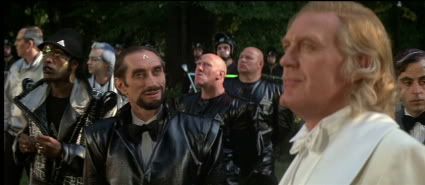
The battle of good and evil, ladies and gentlemen. Thank you and good night.
“Without me?” Boogalow can’t believe his ears. “But my dear Topps you know that is impossible. The world simply cannot exist without me.”
The world can’t exist without another sleazy music agent? Oh wait, I get it! Mr. Boogalow's the devil!
I never saw that one coming!
“Let’s give it a try,” says Topps before he joins the others on their journey to a place without sin.
And, in case you forgot, this has been: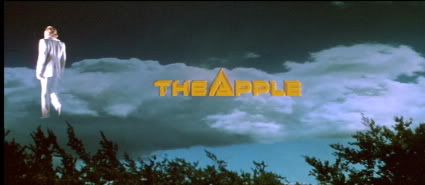
Well that was The Apple. Since this post turned out to be far longer than I thought it was going to be, I’m going to end it here for today and go into my analysis of the film tomorrow. So, until then:
God
Not God
Getting to the Core of The Apple
Why It Sucks As Hard As It Does
Like most WWTTM, The Apple fails largely because it attempts to combine two elements that wiser folks would have determined worked to each other’s detriment. It wants to be a cult midnight movie in the same vein as The Rocky Horror Picture Show and to that end features a tale full of sex, drugs and rock & roll, along with a large dollop of gay camp aesthetic, but it also wants to be a moralistic allegory about the Biblical event known as the Rapture, in which only those who reject the path of sin know the glory of eternal righteousness.
That’s not to say that this approach could not work in more talented hands. Bob Fosse’s Cabaret for example skillfully played with the audience’s emotions by presenting us with musical sequences that were—on their face—quite charming, but that were, beneath their surface, full of unpleasant subtext about human greed, jealousy, nationalism and bigotry. But in the case of The Apple writer/director Menahem Golan and lyricists George S. Clinton and Iris Recht seemingly lack the talent or sophistication required to make this approach work.
Another factor in the film's failure is its running time, which at 86 minutes is extremely short for a musical that features 12 songs. The result is a structure similar to many operettas, where the major narrative thrust of the film is told in song. In the hands of a Gilbert and Sullivan this can work marvelously, but here the structure only succeeds in highlighting the film’s complete lack of character development and logical motivation. Rather than present a situation where Bibi is seduced by Dandi and finds herself attracted to him, the film merely puts them together for two minutes and has Bibi wondering in song how the touch of his hand can make her tremble. And were it not for the song Pandi sings after she helps Bibi escape from Boogalow, we would have no idea why she suddenly decided to rebel against her manager, and even then the song never actually explains her change of heart, it only tells us that it happened.
In that same vein, we are presented with a villain who is supposed to represent the Devil and, as such, the personification of evil, but whose actions never rise to the level of malevolence most would associate with the Prince of Darkness. In his songs Boogalow comes across more cynical than evil and we never actually see him do anything that we wouldn’t expect a music mogul at his level of success to do. Though the film implies that he has taken over the government, the only evidence we see of him taking advantage of this power is through his forcing everyone to wear bim marks and requiring that they dance in the street everyday at 4 PM. This first act is obviously nothing more than a clumsy analogy to the Bible’s “Mark of the Beast” and the second is just an excuse to work in another musical number. It doesn’t help that Vladek Sheybal’s performance in the role exudes far more charm than menace. Even in the end, when he is talking to Mr. Topps, his eternal antagonist, he comes across more like an old friend who can’t believe his pal is taking such a tiny slight so seriously than someone confronting his greatest enemy in the universe.
But, as mentioned before, the film’s chief flaw is the way it embraces the camp aesthetic for its musical numbers in order to facilitate a story whose moral is a direct repudiation of that very same aesthetic. What really makes this hurt the film is that the few numbers specifically designed to reject this aesthetic are easily the worst and least entertaining in the movie. By far the worst song in the film is “Love is the Universal Melody”, which in any other movie would serve as a parody of the worst lyrical excesses of self-satisfied new age poseurs, but here is meant to prove the purity of Alphie’s heart and his connection to Mr. Topps. Alphie is presented as trying to fight to get his songs heard in a cruel, corrupt world that no longer considers the values of love and devotion to be marketable, but the problem with attempting to make this struggle seem heroic is that his songs suck so badly in comparison to such cheesily entertaining numbers as “Bim”, “Life is Nothing But Show Business” and “Speed”. That’s not to say that those songs could accurately be described as good, but they at least have the benefit of not being meant to be taken seriously.
One must assume that Golan knew that the film's supposedly “evil” characters were much more compelling than his “good” ones due to the scant amount of screen time these “good” characters receive. Even in 1980 the idea of presenting Hippies as a symbol of purity and freedom was a laughable one and it is easy to suspect that Golan chose them more because it would be easier to costume a bunch of extras as flower children than to come up with an original alternative. Still, as lame as they are, it is surprising that they are not given the benefit of a single genuine musical number. Beyond enjoying a quickly interrupted sing-along near the end of the film, the entire group remains mute in the picture, with only the Hippie Leader being given anything to say. We are meant to accept that theirs is a purer, better way of life not because of anything we are shown, but simply because it is not connected to the outside world, which—beyond the lame 4 PM dancing thing—appears to be far more fun and interesting than living with a bunch of dirty folks in a cave.
And then there’s Mr. Topps or, as I like to think of him, Mr. Deus Ex Machina. Truly this is a case of God out of the machine at its most literal and clumsiest. I would have to watch the movie again to be 100% sure, but I’m fairly certain that there is not one reference to this character before Alphie starts looking for him up in the sky, expecting him to appear. Perhaps Golan wanted us to be surprised by this ending, but the only result this sudden appearance by God to give the movie a happy conclusion inspires is embarrassed disbelief. Again it doesn’t help the film that Topps is so intent on finding a world without Boogalow’s “pollution” when that pollution doesn’t look that unbearable. In The Apple Golan has produced a film about the coming of Armageddon (which is the event that follows directly after the Rapture) in which neither the End of Days or its eventual aftermath seem all that bad or—at the very least—seems infinitely preferable to the alternative.
Uh and did I mention that the movie is really tacky?
Okay, so that’s why The Apple sucks. Before we consider why it's awesome, let us once again remember what it's all about:

Good

Evil
Which one would you choose?
Why The Apple Is Awesome
In my last post on The Apple I discussed why it has to be considered an artistic failure and I didn’t even bother to mention such noticeable flaws as the fact that Alphie speaks with an obviously European accent, despite the fact that he is supposed to be from Moose Jaw or that the supposedly futuristic limo that shuffles Mr. Boogalow around the city is a dead ringer for Homer Simpson’s dream car.

The Apple (1980)

The Simpsons "Oh Brother, Where Art Thou?" (1990)
There is no doubt that it is a bad movie, so why then do I have enough genuine affection for it that it has inspired me to spend this much time discussing it on my blog?
Because it Rocks!
Not just musically, but spiritually as well. And what do I mean when I say it Rocks? Let’s just say that you’ll not find my definition of the term in your standard Oxford Dictionary. No, it is an entirely personal definition. One that is best explained by example rather than words.
Rocks
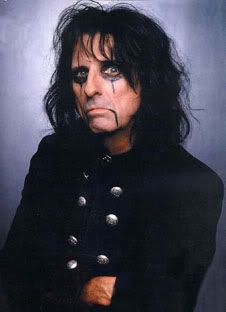
Alice Cooper
Does Not Rock

The Eagles
Rocks

Pat Benatar
Does Not Rock

Olivia Newton-John
Rocks
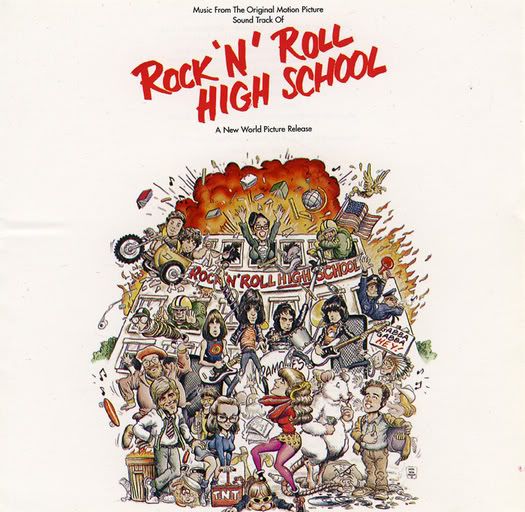
Rock 'n' Roll High School
Does Not Rock
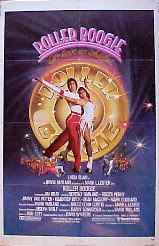
Roller Boogie
While these examples obviously speak for themselves, I feel dutybound to explain myself further--the old fashioned way. Y'know...With words....
What all of these examples in both catagories have in common is an essential cheesiness that is evident throughout their achievements, but what makes some of them Rock, while the others Do Not Rock, is a willingness to embrace that cheesiness with an enormous deathgrip bearhug so powerful that it actually becomes what makes them cool. By accepting their own cheesiness, they transcend it, while those that Do Not Rock try to pretend that their innate cheesiness does not exist, which only serves to highlight how truly lame they are. The Apple Rocks because it is never--not for one moment--ashamed of what it is. Rather than let itself be brought down by its absurd tackiness, it defines itself by it. Despite the mixed signals of its ultimate theme, it is a movie that takes the rebel stance required to so brazenly choose an aesthetic that ultimately dooms it to failure. It is the spiritual equivalent of a drag queen who goes to a straight Country & Western Bar; it knows it is going to get its assed kick, but it goes anyway--with its knee length boots on. And so, like Alice Cooper, Pat Benatar and Rock 'n' Roll High School, The Apple Rocks because it understands this fundamental truth; you can only feel shame if you think you have something to be ashamed about.
And though this is the major reason I love this movie, I would be remiss if I didn't point out a few of the smaller things that I enjoy about this film.
1) Catherine Mary Stewart
Though in my very long breakdown of the movie I made it extremely explicit that I did not have fond feelings for the character of Bibi, that antipathy does not transcend over to the actress who played her. Out of all the young actors for whom The Apple was their big break, only she managed to have anything that approached a career (in fact the film marked George Gilmour's--aka Alphie--sole screen credit) and it is easy to see why, as she is absolutely adorable in a way you seldom see in movies in today (maybe Amanda Bynes, but that's pretty much it). Sure it helps that I'm automatically pulling for her since she's a hometown girl (she's from Edmonton), but she undeniably exudes a quality of likability without which Bibi would have been truly unbearable. Her career following The Apple wasn't hugely impressive, but it did feature some memorable roles in some under-rated films, most notably The Last Starfighter and a film that should be a much bigger cult classic than it currently is, Night of the Comet (in which she plays a valley girl who, with her friend, takes the apocalypse in stride and uses it as an excuse to go to the mall and take all of the free clothes she wants).
2) Mr. Boogalow and Mr. Topps
Vladek Shebal and Joss Ackland were both character actors who had long, well-established careers before The Apple and it is easy to see why. Though Shebal exudes no real menace as Boogalow, he is constantly fun to watch and plays his role with a droll charm that never wavers no matter how absurd the circumstance. While I have little good to say about Ackland's role as Hippie Leader (a fact which has more to do with my dislike for the character than his perfomance itself), his take on Mr. Topps manages to add a genuine sense of pathos and victory to an absurdly stupid ending. He even manages to make the blond wig work (which, despite 'Mato's comment to the contrary, I still insist I could pull off with aplomb).
3) I Love Musicals with Singers Who Can't Sing
As someone who grew up loving singers like Bob Dylan, Tom Waits, Leonard Cohen and Lou Reed, I have long believed that a voice that exhibits genuine character and emotion is always more interesting than anything that comes out of the vocal chords of the classically trained. That's why I've always had a fondness for musicals that feature songs performed by actors with non-traditional singing voices. When I read James Robert Parish's book Fiasco the moment he truly lost me was when he insisted that the reason Lee Marvin's rendition of "Wandrin' Star" from Paint Your Wagon became a minor hit on the charts was because of its "hilarious awfulness". This annoyed me, because I find Marvin's performance of the song, as it appears in the film, genuinely moving. I also adore the moment in Everyone Says I Love You when Woody Allen sings "I'm Through With Love" in his thin, Woody Allen voice and I consider the moment when he and Goldie Hawn dance together besides the Seine to be one of the most magical scenes in film history. This is why I love "Life is Nothing But Show Business in 1994" and "I Know How to be a Master" as they are performed by Shebal. Though he is clearly not a singer (as neither was Catherine Mary Stewart, whose songs were performed by a singer named Mary Hylan) he still manages to make his numbers work as well as their relative quality would allow.
4) Colour!
Damn if this isn't a big bright rainbow of a movie!
5) Most Other People Hate It
Which is a virtue to a natural contrarian like myself.
So that, in and out and around a nutshell is why The Apple Rocks and why it is a WWTTM I am going to keep watching and enjoying for the rest of my life.
'Nuff said.
Repost - The Demon and Mary Marvel, A House of Glib Fumetti
Repost - My Bloody Valentine
The indexing continues with a look at the only movie to ever combine the celebration of Valentine's Day with the gritty world of mining.
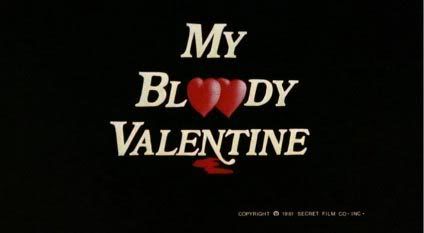 Awhile back a friend from my old job mentioned to me that she had recently rented the 1981 holiday slasher flick My Bloody Valentine and remarked that she had been surprised to find out that it was Canadian. Being the obnoxious geek that I am, I explained to her that it must have been one of the infamous "Tax-Shelter Films" from that period.
Awhile back a friend from my old job mentioned to me that she had recently rented the 1981 holiday slasher flick My Bloody Valentine and remarked that she had been surprised to find out that it was Canadian. Being the obnoxious geek that I am, I explained to her that it must have been one of the infamous "Tax-Shelter Films" from that period.
 But unlike most of the films from this strange period in Canadian cinema, My Bloody Valentine stands out because rather than deny its Northern origins, it embraces them almost to the point of unintended self-parody. Fearful of alienating American audiences, the majority of films shot in Canada (even to this day) are either set in specific American locales or in nameless, unidentified places where all hints of Canadiana are carefully kept away from the camera. This is definitely not the case with this film, though, as it could very well be THE MOST EXPLICITLY CANADIAN MOVIE EVER MADE. Seriously, the only way the movie could be more Canadian would be if the killer turned out to be a beaver in a hockey mask who killed his victims by stuffing Timbits down their throats. And in case any movie producers are reading this, THAT is a movie I would very much like to see.
But unlike most of the films from this strange period in Canadian cinema, My Bloody Valentine stands out because rather than deny its Northern origins, it embraces them almost to the point of unintended self-parody. Fearful of alienating American audiences, the majority of films shot in Canada (even to this day) are either set in specific American locales or in nameless, unidentified places where all hints of Canadiana are carefully kept away from the camera. This is definitely not the case with this film, though, as it could very well be THE MOST EXPLICITLY CANADIAN MOVIE EVER MADE. Seriously, the only way the movie could be more Canadian would be if the killer turned out to be a beaver in a hockey mask who killed his victims by stuffing Timbits down their throats. And in case any movie producers are reading this, THAT is a movie I would very much like to see.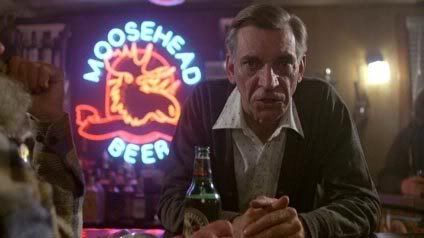 From the general hoser behaviour of its characters, the maple syrup thick Canadian accents (I swear I actually heard several examples of the fabled "a-boot"), the constant references to Moosehead Beer and a cast filled with familar Canadian actors (including Don "The Voice of Mok" Francks and Cynthia "Not Quite As Hot As Her Sister Jennifer" Dale) My Bloody Valentine isn't afraid to wear its country of origin on its sleeve, even though it does avoid mentioning it specifically. In fact this aspect of the movie is so strong, it's difficult for me to judge it in terms of a general audience. Frequently I found myself so enthralled by the blatent Canuckness of it all, that it never occurred to me whether or not a non-Canadian might find it as amusing as I did. I admit that to the eyes of a foreigner, My Bloody Valentine could be just another lame slasher movie with some odd accents and a cast of smalltown characters who strangely never talk about football. I, however, loved every minute of it.
From the general hoser behaviour of its characters, the maple syrup thick Canadian accents (I swear I actually heard several examples of the fabled "a-boot"), the constant references to Moosehead Beer and a cast filled with familar Canadian actors (including Don "The Voice of Mok" Francks and Cynthia "Not Quite As Hot As Her Sister Jennifer" Dale) My Bloody Valentine isn't afraid to wear its country of origin on its sleeve, even though it does avoid mentioning it specifically. In fact this aspect of the movie is so strong, it's difficult for me to judge it in terms of a general audience. Frequently I found myself so enthralled by the blatent Canuckness of it all, that it never occurred to me whether or not a non-Canadian might find it as amusing as I did. I admit that to the eyes of a foreigner, My Bloody Valentine could be just another lame slasher movie with some odd accents and a cast of smalltown characters who strangely never talk about football. I, however, loved every minute of it.
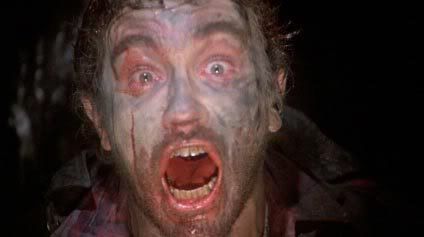 As the film's requisite Creepy Old Man tells the skeptical young miners who hang out in his bar, there's a reason why the town hasn't held a Valentine's Day dance in 20 years. It all began when two foreman--eager to leave work so they could get cleaned up and go to the dance--left six miners alone in the mine, all of whom were trapped when a methane leak caused an explosion. It took six weeks to clean up the rubble and only one of the six miners was found alive. Harry Warden, having lost his mind during the ordeal, resorted to cannibalism to survive and was more than a little pissed at the two foreman who left him and his friends alone in the mine that Valentine's Day. Wearing his workclothes, he killed the two men with a pick-ax befor being caught and sent to the nearby mental hospital. Since then all of the town's Valentine's festivities had been canceled, out of fear Harry might escape and return to mete out further vengeance against the town. But after two decades the story of the killer miner has become the stuff of boogeyman legend and everyone assumes it is safe to start celebrating the holiday of love once again. It goes without saying that they are mistaken.
As the film's requisite Creepy Old Man tells the skeptical young miners who hang out in his bar, there's a reason why the town hasn't held a Valentine's Day dance in 20 years. It all began when two foreman--eager to leave work so they could get cleaned up and go to the dance--left six miners alone in the mine, all of whom were trapped when a methane leak caused an explosion. It took six weeks to clean up the rubble and only one of the six miners was found alive. Harry Warden, having lost his mind during the ordeal, resorted to cannibalism to survive and was more than a little pissed at the two foreman who left him and his friends alone in the mine that Valentine's Day. Wearing his workclothes, he killed the two men with a pick-ax befor being caught and sent to the nearby mental hospital. Since then all of the town's Valentine's festivities had been canceled, out of fear Harry might escape and return to mete out further vengeance against the town. But after two decades the story of the killer miner has become the stuff of boogeyman legend and everyone assumes it is safe to start celebrating the holiday of love once again. It goes without saying that they are mistaken.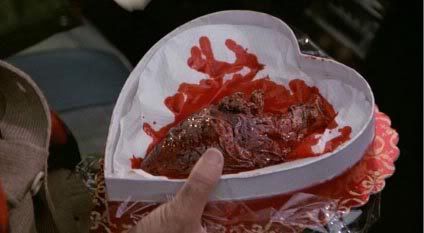 Given the nature of the holiday the movie is centered around, it's only natural that a part of its plot is devoted to a love triangle. T.J., the film's nominal hero (if only because he manages to survive all the way to the end) is the mayor's son who has returned to the town after failing to make it on his own "out west." During his absence he left behind Sarah (who also survives, but can't accurately be described as a proper Final Girl) who--never knowing if or when T.J. was going to return--started dating Axel. Sarah is clearly torn between the man who left her and now wants her back and the man who's been with her ever since T.J. went away, while the audience has trouble figuring out why she's attracted to either of them. I suspect many folks will find these more dramatic sequences difficult to sit through, but I found myself much taken by the low-rent CBC-ness of it all. It doesn't hurt that in the final scenes T.J. wears an open shirt, neck-bandana ensemble that is hilariously mesmerizing to behold.
Given the nature of the holiday the movie is centered around, it's only natural that a part of its plot is devoted to a love triangle. T.J., the film's nominal hero (if only because he manages to survive all the way to the end) is the mayor's son who has returned to the town after failing to make it on his own "out west." During his absence he left behind Sarah (who also survives, but can't accurately be described as a proper Final Girl) who--never knowing if or when T.J. was going to return--started dating Axel. Sarah is clearly torn between the man who left her and now wants her back and the man who's been with her ever since T.J. went away, while the audience has trouble figuring out why she's attracted to either of them. I suspect many folks will find these more dramatic sequences difficult to sit through, but I found myself much taken by the low-rent CBC-ness of it all. It doesn't hurt that in the final scenes T.J. wears an open shirt, neck-bandana ensemble that is hilariously mesmerizing to behold. Beyond that the film features the standard authority figures trying to keep the return of the murdering maniac a secret, the young adults defying the authority figures and throwing the party anyway and the shocking discovery that the killer isn't who everyone thinks it is. The gore is kept to a minimum and the filmmakers show an unfortunate restraint in their presentation of sex and nudity. Unlike most slasher movie victims, who at least get to enjoy penetration and/or a climax before they are killed, all of the amorous folks in this movie get whacked before they can even get past second base. And those folks who actually expect a movie like this to be frightening (which I've never really understood, but anyway...) will likely be disappointed as director George Milhalka keeps the action as predictable and suspense-free as possible. Despite this, anyone interested in seeing a completely straight-faced version of Strange Brew should definitely make every attempt to check out My Bloody Valentine
Beyond that the film features the standard authority figures trying to keep the return of the murdering maniac a secret, the young adults defying the authority figures and throwing the party anyway and the shocking discovery that the killer isn't who everyone thinks it is. The gore is kept to a minimum and the filmmakers show an unfortunate restraint in their presentation of sex and nudity. Unlike most slasher movie victims, who at least get to enjoy penetration and/or a climax before they are killed, all of the amorous folks in this movie get whacked before they can even get past second base. And those folks who actually expect a movie like this to be frightening (which I've never really understood, but anyway...) will likely be disappointed as director George Milhalka keeps the action as predictable and suspense-free as possible. Despite this, anyone interested in seeing a completely straight-faced version of Strange Brew should definitely make every attempt to check out My Bloody ValentineSlasher Statistics
Body Count: 17 (Onscreen: 5 women and 6 men/Offscreen: 6 miners)
Shower Scenes: 2 (but neither count since the first features a bunch of dudes and in the other the female is fully clothed)
Instances of Nakedity:0 (Booooooo!!!! Hisssssssss!!!!!)
Obligatory Has Beens: Anyone who calls Don Francks a has been is looking for a mess of fists in their face!
Instruments of Death: Pick-Ax, Explosion, Boiling Weenie Water, Shower Nozzle, Large Drill Bit, Nail Gun, Rope
Moments of Inexplicable Female Jealousy: o
Creepy (and therefore suspicious ) Old Guys: 1 (but he dies too early to probably count)
References to Moosehead: Too many to humanly count.
Amount of Time Required to Correctly Identify Killer: The film fails to provide a crucial clue until the moment of revelation, so you might actually be surprised. I guessed correctly about an hour in.
Exploding Heads: o
Cheesy References to Other Horror Movies: 1 (Since Valentine's Day in the movie falls on a Saturday, then that means all of the events on the day proceeding it take place on Friday the 13th)
Utterly Pointless Trivia: The movie's ending was deliberately left open for a sequel and director George Milhalka did actually try to convince Paramount to produce a second film in 2001. They decided to pursue different projects.
Final Girl Rating: 6 out of 10
Repost - The Prowler
I've mentioned before in previous posts that I've been going through a real horror movie dvd collecting phase--to the point that I have a stockpile of dozens (maybe even as much as a hundred) of movies I've yet to actually sit down and watch. To do something about this, and make it so I don't have to wonder what I'll post about on Sunday's, I've decided to do an online index of my collection, in which I'll write a post about one of these movies each week. To keep things easy for me, I've broken them up into different sub-genres, which I will focus on individually until I run out of movies and have to move on to the next one. I am going to start off with the Slasher genre, which will probably take me all the way to September or October to complete.
And for the premiere edition of this regular feature (and I mean it this time, damn it!) I've decided to take a short look at an occasionally-entertaining and frequently gory movie that was made in 1981 during the peak of the sub-genre's popularity.
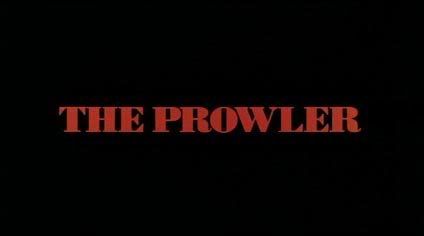 Also released as Rosemary's Killer in Europe, The Prowler is best remembered today for featuring some of Tom Savini's more memorable slasher movie make-up effects and for being the film that got director Joseph Zito the job of putting together the fourth (and some believe best) film in the immortal Friday the 13th franchise.
Also released as Rosemary's Killer in Europe, The Prowler is best remembered today for featuring some of Tom Savini's more memorable slasher movie make-up effects and for being the film that got director Joseph Zito the job of putting together the fourth (and some believe best) film in the immortal Friday the 13th franchise.For some--the psychological victims of war--it will be a long road back. These men will need time to rebuild the lives they set aside when Uncle Sam called. For others--the G.I.s of the "Dear John" letters--it means starting over, replacing what they have lost. They faced one challange and won! They can win this one too!
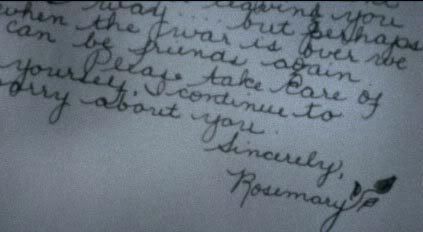
At this the movie then begins to pan down one of these "Dear John" letters as we hear the voice of a young woman, Rosemary, read it aloud, explaining to her overseas beau that she can no longer wait for him and needs to move on with her life. It doesn't take a genius to figure out that the recipient of this letter is probably going to prove to be a little less than understanding.
With this set up, we are taken to a town called Avalon Bay and informed that it is June 28th 1945, 'The Night of the Graduation Dance." Given the movie's low budget, The Prowler deserves some credit for bringing some authenticity to this period sequence. Though Zito admits in his commentary that the costumes were all eight years out of date, having been found in a warehouse with tags labeled "1953" still sewn inside them, these scenes manage to avoid being as overtly anachronistic as others found in similar movies from the height of the slasher era. It helps that it's a short sequence that ends when the unnamed soldier her letter was addressed to arrives to impale Rosemary and her new boyfriend with a pitchfork, indicating that he didn't take the rejection as well as she had hoped.
We then jump ahead exactly 35 years later and are introduced to our heroes and future victims, learning in the process that they are about to hold the first Graduation Dance since the two kids were murdered all those years ago. It soon becomes clear that our two main protagonists are an amazingly bland blonde named Pam (Vicky Dawson) and Mark, the deputy sheriff with the embarassing 70s haircut she's been known to flirt with on occasion (Christopher Goutman, who later forged a career as a director of afternoon soap operas). Turns out that the dance coincides with the Sheriff's (Strangers on a Train's Farley Granger) annual fishing trip, which means that Mark will be on his own if any trouble occurs.
In an attempt to keep the mystery going, the filmmakers fill the town with as many creepy old men as their budget could afford, hoping to keep the audience from guessing the true identity of the killer. Personally it took me 20 minutes to figure it out, but I can be a bit slow about these things.
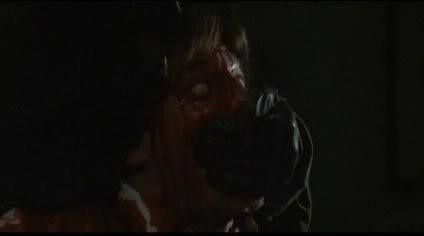 For reasons that are left to the audience's imaginations rather than actually explained, the never-caught psycho ex-soldier responsible for the murders that night 35 years earlier decides to suit up once again and arm himself with a bayonet, a sawed-off shotgun and his trusty pitchfork. He then proceeds to make his way to the almost-vacant dorm rooms and finds a young couple who are just about to get squishy with it. The young man gets a bayonet in the head and his naked girlfriend gets pitchforked in the shower.
For reasons that are left to the audience's imaginations rather than actually explained, the never-caught psycho ex-soldier responsible for the murders that night 35 years earlier decides to suit up once again and arm himself with a bayonet, a sawed-off shotgun and his trusty pitchfork. He then proceeds to make his way to the almost-vacant dorm rooms and finds a young couple who are just about to get squishy with it. The young man gets a bayonet in the head and his naked girlfriend gets pitchforked in the shower. 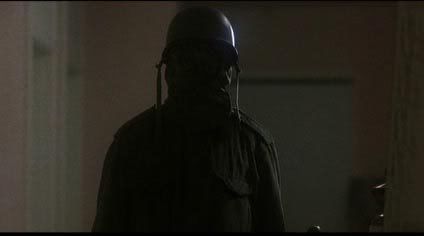
Returning to the dorm to change out of her punch-splattered dress, Pam manages to avoid discovering the bodies of her murdered friends, but does suffer a run in with the man who killed them. She manages to escape from him (largely because, like most slasher villains, he seems unwilling to catch his victims if it means running after them) and finds Deputy Mark, who is just shitty enough at his job to not only not find the killer, but also completely miss out on finding his first two victims as well.
 From that point on the movie does what its supposed to do and intercuts scenes of The Prowler killing folks with Pam and Mark trying to figure out what is going on. The script does try to be a bit different by ignoring some of the more blatent cliches. For example one couple (who ultimately serve absolutely no purpose to the film's narrative) are allowed to have sex without dying and the male protagonist is allowed to remain alive. But even here the picture is a bit clumsy, since we are lead to believe The Prowler has killed Mark, but he is shown to be alive and unharmed after Pam finally manages to kill the murderer in typical Final Girl fashion. This could have been cleared up with a single line of dialogue, but the filmmakers seem too eager to get to the film's last shocking surprise (which ends up being neither shocking or surprising) to bother tying up such an obvious loose end.
From that point on the movie does what its supposed to do and intercuts scenes of The Prowler killing folks with Pam and Mark trying to figure out what is going on. The script does try to be a bit different by ignoring some of the more blatent cliches. For example one couple (who ultimately serve absolutely no purpose to the film's narrative) are allowed to have sex without dying and the male protagonist is allowed to remain alive. But even here the picture is a bit clumsy, since we are lead to believe The Prowler has killed Mark, but he is shown to be alive and unharmed after Pam finally manages to kill the murderer in typical Final Girl fashion. This could have been cleared up with a single line of dialogue, but the filmmakers seem too eager to get to the film's last shocking surprise (which ends up being neither shocking or surprising) to bother tying up such an obvious loose end.On the whole The Prowler
Slasher Statistics
Body Count: 8 (4 men and 4 women)
Shower Scenes: 1
Instances of Nakedity: 1
Obligatory Has Beens: Farley Granger, Lawrence Tierney
Instruments of Death: Bayonet,Pitchfork, Sawed-Off Shotgun, Regular Shotgun
Moments of Inexplicable Female Jealousy: 1
Creepy (and therefore suspicious ) Old Guys: 4
References to Pot: 1 ("Do you have any rolling papers?")
Amount of Time Required to Correctly Identify Killer: 20 minutes
Exploding Heads: 1
Cheesy References to Other Horror Movies: 0
Utterly Pointless Trivia: The movie was co-written by Neil F. Barbera, son of the recently-deceased c0-creator of The Flintstones, Scooby-Doo and Tom & Jerry, Joseph Barbera.
Final Girl Rating: 5 out of 10
Repost - Slumber Party Massacre II
There is a theory in Hollywood that the last 10 minutes of a movie are by far the most important for its overall success. The argument goes that a mediocre film can be saved by a memorable conclusion, while a disappointing ending can easily derail an audience’s appreciation of an otherwise great film. The reason for this is simple—many people are linear thinkers who base their judgments solely on their most recent experiential data. Ask them what they thought of a film and they’ll base that judgment on how they felt when they walked out at the end. Even if they sat bored for the first 80 or so minutes, it’s the rush of excitement they remember from the last 10 that will cause them to praise the picture and—vice versa—cause them to denounce a film with an unsatisfactory climax that they otherwise enjoyed.
It is for this reason that any filmmaker who employs the infamous “It was only a dream!” device, no matter how cleverly or innovatively they do so, ultimately dooms their work to popular failure. Over the years audiences have come to think of this ending as a hackneyed rip off and as a result are inclined to revolt against it and any film it appears in—no matter what the context or how it is employed.
The best example of this is the vehement reaction Cameron Crowe’s Vanilla Sky engendered during its 2001/2002 holiday release. As documented by Chuck Klosterman in his essay “The Awe-Inspiring Beauty of Tom Cruise’s Shattered, Troll-like Face” (from his book Sex, Drugs, and Cocoa Puffs), audience members walked out of the movie visibly hostile in a way that bore no relation to the quality of the film they just sat through. “…[I]n the parking lot outside the theater, I overheard one guy tell his girlfriend he was going to beat her for making him watch this picture,” he writes in stunned amazement. A well-made film filled with excellent performances (I personally have never found Penelope Cruz more enchanting) that features at least one truly amazing sequence (Cruise’s desperate jog through a deserted Times Square), the reaction the film received ultimately had everything to do with its final few minutes, in which we learn that everything we have seen has been the computer-programmed dream of a man in cryogenic stasis in preparation for his rebirth in an unknown future. Having primed viewers to expect a more complex explanation for its events, the film’s creative variation of “It was only a dream”—alongside its refusal to show the future world it alluded to—alienated viewers to an extreme degree. I strongly suspect that if the Brothers Medved had conducted a poll that year, the movie would have easily made the list of the worst films of all time, even though it wasn’t even the worst film released that particular weekend.
I mention this as a way to explain why the utterly harmless and fitfully amusing sequel to the subject of my previous DVD Horror Movie Index was only until very recently ranked as one of the IMDb’s Bottom 100 rated movies. Rather than enjoy it as an entertaining—if also occasionally cheesy—comedy nightmare, most people upon seeing it choose to dismiss it as nothing more than a weird/stupid slasher movie with the lamest of all possible endings.
I am, of course, talking about:
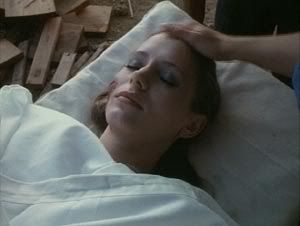
Repost - Slumber Party Massacre
Case in point, the subject of today’s Sunday Thursday Horror Movie DVD Index—a film whose significance comes largely from its lack of significance. One of the few original early 80s slasher movies to have been written and directed by women, the film begs knowledgeable viewers to engage it as a work of feminist comment, but stymies such commentary by presenting the genre’s clichés without any significant irony or insight.
I always wondered why the film’s screenwriter, Rita Mae Brown, and its director, Amy Holden Jones, decided to take no advantage of their unique-for-the-genre perspective and instead chose to make a by-the-numbers reproduction of the slasher template. What I did not know and only learned as I started to do a little bit of research for this post, was that though Brown received sole credit for the film’s screenplay, the draft she wrote was completely different in tone from the script that was eventually filmed. Brown originally wrote the film as a satire of slasher movies, but as the script was revised by a handful of uncredited writers the satire was (mostly) lost and the film ceased to be an ironic commentary on the genre and instead became a typical representation of it.
To which I say:
I am, of course, talking about:
Repost - The Big Hurt
Once upon a time a person could reasonably expect that whenever they went to see a movie one of the last things they would ever have to watch was the sight of a man’s penis being forcibly removed from his body.
In the past few years a handful of filmmakers have taken it upon themselves to break what could be consider one of the last remaining cinematic taboos and deliver unto their audiences startlingly graphic depictions of castration. Now that’s not to say they were the first to do this, as the history of exploitation cinema is peppered with titles that were willing to take aim straight at the area responsible for their male audiences’ most common and immediate fears.
 For example, there’s the famous scene in Ilsa, She-Wolf of the S.S., in which the title character (memorably played by the unforgettable Dyanne Thorne) informs her now-former lover that it is her habit to neuter a man once he is no longer able to satisfy her insatiable sexual demands and then goes on to prove it with a very sharp surgical implement (an act that allows for the irony of her eventually being undone by his replacement, a Polish soldier whose priapism leads to her finally meeting her match). Although the scene is nowhere near as graphic as the ones about to be discussed, it is interesting insofar as it’s the one significant act of violence against a male character in a film whose central theme is literally built upon the presentation of violence against women (Ilsa’s pet theory being that women are naturally capable of absorbing more pain than men, which she attempts to prove by inflicting a series of graphic tortures against every busty soft-core actress who was working in 1975). One gets the sense that by presenting us with what most would consider the ultimate form of brutality that can be committed against a man, the filmmakers were hoping to offset the blatant misogyny of the rest of the film.
For example, there’s the famous scene in Ilsa, She-Wolf of the S.S., in which the title character (memorably played by the unforgettable Dyanne Thorne) informs her now-former lover that it is her habit to neuter a man once he is no longer able to satisfy her insatiable sexual demands and then goes on to prove it with a very sharp surgical implement (an act that allows for the irony of her eventually being undone by his replacement, a Polish soldier whose priapism leads to her finally meeting her match). Although the scene is nowhere near as graphic as the ones about to be discussed, it is interesting insofar as it’s the one significant act of violence against a male character in a film whose central theme is literally built upon the presentation of violence against women (Ilsa’s pet theory being that women are naturally capable of absorbing more pain than men, which she attempts to prove by inflicting a series of graphic tortures against every busty soft-core actress who was working in 1975). One gets the sense that by presenting us with what most would consider the ultimate form of brutality that can be committed against a man, the filmmakers were hoping to offset the blatant misogyny of the rest of the film. 
And, of course, there’s the scene I discussed in Day of the Woman where Camille Keaton gets revenge for her vicious, extended gang-rape by cutting off the junk of the guy who made it happen, as well as several more examples I’m too lazy to mention because if I did I’d have to link to their IMDb pages and that takes more time and effort than you’d ever think it would. So, yes, there is a precedent of cinematic castration throughout the history of the art, but it’s only in the past few years that filmmakers have been so increasingly happy to take it to the furthest possible cringe-inducing level.

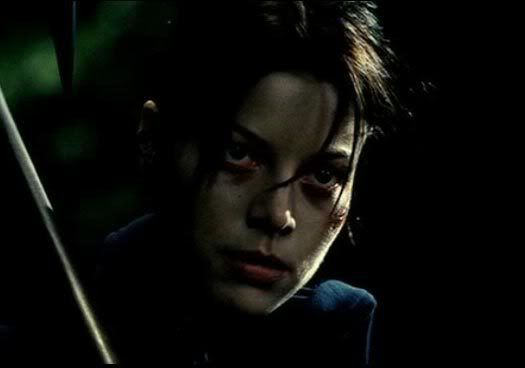
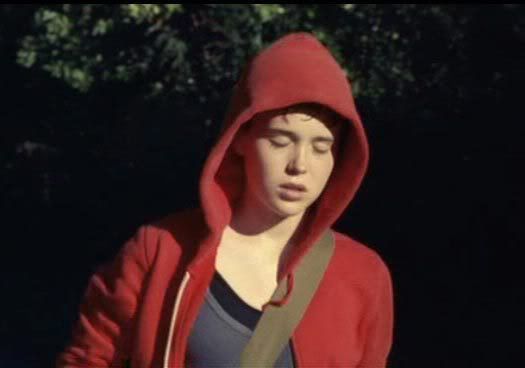

The reality is that my interest in this recent phenomenon has less to do with any natural fascination with castration (I am, after all, a man and I happen to revere my phallus as much as any other Tom, Dick or Harry), but rather with the characters shown to be doing the castrating. One is a wealthy young woman who is driven to commit her violent act as a desperate means of survival. Another is a girl whose motives and identity are so clouded in mystery it’s possible to assume she’s not even human, but instead a divine angel of vengeance sent forth to avenge a terrible crime. And the last is a true innocent whose strange “adaptation” turns her into the living embodiment of one of the world’s oldest and most universal of myths. All three of them begin their stories as victims, but end them stronger than they were before—proving that the most extreme feminists were right, female empowerment really is just a matter of slicing off some dick's dick.
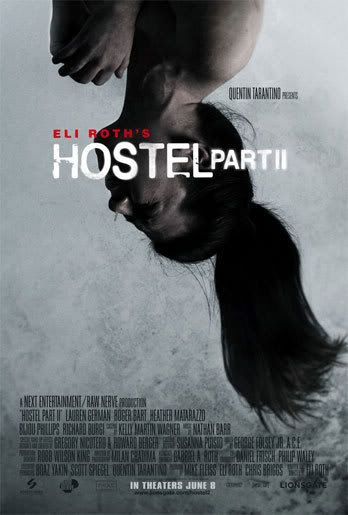
When I say that I am stunned and perplexed by the reaction Eli Roth’s Hostel: Part II received when it was released, I am speaking just as much as the serious cineste who can spend hours talking about the films of the usual gang of European arthouse auteurs as I am the genre enthusiast who’s devoted hours of his life deconstructing the thematic intricacies of Slumber Party Massacre II. While my low-opinion of mainstream critics allowed me to expect that they would lack the insight to look beyond its premise and controversially graphic torture set pieces, I was shocked when many genre fans equally failed to grasp how successfully it worked as a sophisticated piece of Swiftian style satire. Rather than acknowledge the interesting themes Roth chose to explore in this second film, both groups focused solely on its scenes of violence and dubbed the film a mere gender-reversed replica of the original.
But I would argue that by simply reversing the genders of his protagonists, Roth created what was both an inherently more interesting and thematically insightful film. Whereas the first film focused on the irony of foreign tourists who use their wealth to exploit people in other countries, only to themselves become much more heinously exploited by far wealthier tourists with much more depraved tastes, the second takes a broader look at the global society in which such an underground industry could actively flourish. In Hostel it is easy to imagine that had he not been lured into the enterprise as a victim, Jay Hernandez’s character, Paxton, would eventually grow up to become one of its customers, if only because of his stereotypical alpha-male tendencies and willingness to use the misfortune of others as a means to satisfy his own carnal pleasures. The same cannot be said for Beth (Laura Germain) the second film’s protagonist, who—largely by virtue of her femininity—is infinitely more sympathetic and vulnerable than her predecessor, which makes her final transformation that much more dramatic and interesting.
For those of you who have yet to see either film, both are about a small town in Slovakia whose local economy revolves around luring young tourists into their quaint hostel, where they are subsequently kidnapped and sent to an abandoned Soviet-era concrete monstrosity. There they are sold to wealthy businessmen who travel from across the world for the opportunity to enjoy the experience of torturing and killing another person without consequence. While for most viewers the horror in both films lies in their graphic depictions of torture, I personally feel this is strongly superseded by the both the existence of the enterprise that allows this torture to happen and its apparent popularity. As far as I’m concerned the most chilling sequence of the two films occurs in Part II, just after Beth and her two friends, Lorna and Whitney, have arrived at the titular hostel and—without their knowing it—have become the objects of desire in an international bidding war over the right to maim and kill them.
Watching the two friends interact it’s hard not to think of the two similar characters in Neil LaBute’s directorial debut In the Company of Men who decide to avenge their frustrations towards women by deliberately humiliating the most innocent woman they can find. Todd (Richard Burgi) is the ringleader and alpha-male, while Stuart (Roger Bart) is the follower, who reluctantly goes along on the trip despite his grave moral concerns about what they are doing. In that way they also resemble the two main protagonists from the first film, Paxton and Josh (Derek Richardson). The clear subtext in the first Hostel was that Josh allowed himself to be ordered around by his more dominant friend because their manly adventures allowed him to avoid confronting his own closeted homosexuality, while in Part II Stuart follows Todd because their adventures together (all of which the far-wealthier Todd pays for) represent the only times in his life where he is able to escape the stifling bonds of his career and familial obligations.
But as their stories continue and the two friends at last find themselves in their leather butcher aprons and alone with the women they are now contractually obligated to murder (the organization’s secrecy is maintained by a kind of mutually assured destruction in which everyone who takes part is as guilty as everyone else) the true nature of their personalities come out. Todd, the pure hedonist, who has dressed Whitney in the costume of a low-rent prostitute, at first seems to enjoy the experience, teasing his victim with a circular saw. But when he slips and the weapon connects with her face and does actual damage, the seriousness and horror of the situation finally dawns on him. Suddenly aware that this is not a game and that he is in a room with a real human being who screams and bleeds when she is injured, he panics and runs out of the room. Informed that he must finish her off in order to meet his obligation, he refuses and is then mauled to death by a group of dogs kept around for just such occasions.
Stuart’s first instincts, on the other hand, are to attempt to rescue Beth—who he has dressed in the casual business attire worn by the women in his day-to-day life—but as the reality of the situation becomes more apparent to him he realizes he really does want to kill her. Finally given a true outlet for all of the frustrations and humiliations he has swallowed down over the years, he realizes he actually relishes the chance to take it. Given the opportunity to finish off Whitney for a reasonable discount, he happily decapitates her with a machete before returning to Beth, who has come to represent in his mind all of the women who have embarrassed and "castrated" him throughout his life.
More than anything it is her journey that I feel elevates Hostel: Part II to a far greater level than its detractors allow. A very wealthy young woman following the death of her father, Beth has not only the will but also the resources required to be a kind and generous person. Far more sensible than her party-girl friend Whitney, but also more cautious than the naïve Lorna, Beth is the most grounded and centered character in the film (her one quirk being her very strong and visceral reaction to anyone who calls her the dreaded c-word). For this reason she is able to keep her head and figure out a way out of the torture chamber fate has thrown her into. When Stuart returns to kill her, she is able to reverse their situations and attempts to bargain her way out with the man in charge. The fate of his manhood (and life) literally in her hands, Stuart is unable to contain his rage and says the one thing guaranteed to ensure his emasculation.
A two-handed character piece, the film is a psychological thriller about the dangers of online sexual predation, but not quite in the way most people would expect. While Jeff Kohlver (Patrick Wilson) completely matches the profile of one of those idiots regularly caught on camera on Dateline NBC’s now infamous “To Catch a Predator” segments (if only a bit smoother, stylish and less obviously creepy) his young prey, Hayley Stark (Ellen Page), is not what you would call a typical 14 year old girl. Not only is she the one who suggests that they meet together after flirting online, but it also soon becomes clear that she is nowhere near as innocent or defenseless as Jeff (and us viewers) assume.
It turns out that Hayley believes Jeff is guilty of a terrible crime and is willing to take dramatic action to ensure he is punished and doesn’t do it again.
Though they were loath to admit it, the reason my male friends refused to praise the film was because it forced them to make a choice they did not want to make—to either sympathize with a man who at best was a sleazy pedophile and at worst a rapist/murderer or the possibly delusional young woman who wanted to cut his balls off. As loathsome as they found Jeff to be, they still could not bring themselves to endorse Hayley’s mission, because—as much as they didn’t want to—they identified with his plight and imagined themselves in his situation.
The more I thought about it, the more it became clear to me that the castration sequence in Hard Candy is the male equivalent of Camille Keaton’s extended rape in Day of the Woman (aka I Spit On Your Grave), not only in terms of length (Jeff spends 34 of the film’s 100 minutes strapped to the table where the “operation” is performed) but also in its ability to shock and divide its audience. As I noted in my way-too-long discussion of Meir Zarchi’s classic, film critic Roger Ebert denounced Day of the Woman as the worst film ever made because of his belief that the filmmaker had intended the audience to cheer on the brutal rape of its female protagonist, while it is my belief that Zarchi clearly wanted the audience to be disgusted by what they saw. In much the same way, a person’s appreciation of Hard Candy depends on whether or not they believe that Hayley is acting rationally and that her actions are just.
There is much evidence to suggest that Jeff is guilty of the crime he is accused of, but it is all circumstantial at best. It also doesn’t help Hayley’s cause that she cruelly toys with him as she makes her surgical preparations. Justice should not be a game and sometimes it seems as though she is having too much fun playing vigilante.
Some people find it impossible to separate their personal politics from their enjoyment of a film. For the most part, these are people I try hard to avoid. For me part of the fun of a film like this is that it allows me to embrace a dark side of my own personality I prefer to sublimate in my actual life. Whereas in the world actual I believe there is no room for revenge in the pursuit of justice and therefore abhor capital or physical punishment of any kind (believing that the ultimate form of hypocrisy is for a government to claim that the only way the worst possible crime can be punished is by committing that crime itself), in the cinematic world I am allowed the freedom to embrace my inner redneck and cheer on Hayley as she cuts that pervert’s nuts off.
For this reason I found watching this sequence filled me with both revulsion and exhilaration—I squirmed in sympathy with Jeff, while cheering on Hayley’s act of so-called “preventative maintenance.” As a result for me the truest moment of ambivalence came at the end of the sequence when Jeff, finally left alone, escapes from his bonds and discovers that Hayley has been fucking with him (and, in turn, Slade and screenwriter Brian Nelson, have been fucking with us).
The film’s most immediate cinematic peer is the justly heralded cult classic Ginger Snaps, which remains one of my favourite films from this decade. Both are horror tales about young female outcasts whose ascent into womanhood turns deadly due to forces within their own bodies they cannot control. In Ginger Snaps, that force is the lycanthropy that causes young Ginger to embrace her carnal side as she descends into a state of permanent beastliness, while in Teeth it is the virginal Dawn’s discovery that she is the flesh and blood incarnation of one of the Earth’s oldest and most widespread myths.
One of the things I loved most about Mitchell Lichtenstein’s script is the risk he takes in making his protagonist a character most horror movies fans by nature would abhor—an abstinence-preaching goodie-goodie who wears her virginity on her sleeve and hangs out with friends so pious they refuse to see an R-rated movie. In less deft hands Dawn (Jess Wexler) could have turned out to be as obnoxious a character as Mandy Moore’s in the supremely tiresome A Walk to Remember (not to be confused with her deliberately obnoxious character in the brilliant Saved!), but in one short sequence he gains her our sympathy by showing us that she is just as much an outcast as any black-shirted malcontent.
As audacious as Lichtenstein’s choice is, it does make perfect narrative sense, insofar as Dawn’s veneration of her own virtue explains away the story's potential biggest plot hole. By making her essentially afraid of her own sexuality (as exemplified by her horrified reactions to her intensely erotic dreams) it becomes possible to appreciate how she has been able to avoid any potential physical examination that would expose her strange mutation.
Though the cause of this mutation is most likely linked to the presence of the enormous nuclear cooling tower visible just a few miles from her house (as is the cancer slowing killing her mother) Lichtenstein’s script also suggests that it is a natural evolutionary step—one that is necessary if women are ever to wrest themselves from the physical dominance of brutal, sex-obsessed males.
If ever there was a subject begging to be exploited in a horror movie setting, Vagina dentata has to take first prize. While it has been used as a subtext (both consciously and accidentally) in many films, Teeth is one of the first to chuck metaphor out the window in favour of a direct representation of man’s biggest unspoken fear. It’s genius, though, comes in the way it allows us to subvert that fear and compels us to cheer on the young woman who is the unwitting symbol of primal emasculation. Rather than terrify us with a horrific descent into Dawn’s monstrosity, Lichtenstein chooses to create a story of empowerment in which Dawn’s mutation makes the slow transformation from inexplicable curse to exploitable gift.
Like Roth, Lichtenstein’s intentions are clearly satirical, which means its characters have been drawn to serve his thematic purposes rather than serve as three-dimensional representations of people found in our own non-cinematic reality. That said it does seem only fair that in a film where its female protagonist is partially defined by the devastating power of her vagina, all of the male characters are shown to be incapable of making any decision not immediately linked to the desires of their penises. In the world of Teeth, every male is a potential sexual predator, especially the nice ones who say all the right things.
I don’t mean to propagate the hoary old feminist cliché that every man is a wannabe rapist, but rather that the biological impulse to procreate remains strong enough that few men possess the inner-strength to ever completely disregard it. In Teeth this is best represented by the character Tobey (Hale Appleman), a fellow “abstainer” whose chaste flirtations with Dawn quickly escalates into violence as a result of his own pent-up sexual frustration (“I haven’t even jerked off since Easter,” he shouts at her in an attempted mitigation of his assault). During this, her first experience with intercourse, Dawn and Tobey both discover her hidden secret and following his entirely unexpected castration, he falls into the water they had been swimming in and does not come back up to the surface.
With this Dawn is not only forced to contemplate her mutation, but also her own sexuality for the first time in her life. This leads to her first ever visit to a gynecologist in a scene that best exemplifies the film’s darkly humourous tone. Perhaps it says something about my own twisted sense of humour, but I laughed longer and harder the first time I watched this moment than during any other scene I’ve seen this year.
With this second incident a clear pattern begins to emerge. Sensing Dawn’s unusual innocence, the men around her seek to exploit her sexual naiveté only to find out too late that they do so at their peril. Though she lacks the experience to immediately recognize the inappropriateness of the doctor’s actions (his gloveless probing clearly treading past the line from routine examination into outright molestation), subconsciously she identifies the violation for what it is and her body takes action against it. As will become clear with her next sexual experience, her strange “adaptation” does not act in opposition to her impulses, but directly with them. Though she does not know it yet, she is in complete control of her sexuality—it is merely a matter of accepting and embracing it.
Overcome by her role in Tobey’s death, the doctor’s mutilation and her mother’s collapse and subsequent hospitalization, Dawn finds herself drawn to Ryan (Ashley Springer), a boy from school whose crush on her has always been flagrantly apparent. He does his best to comfort her anxiety (including giving her some pills purloined from his mother), while also exploiting her duress for his benefit. He decorates his room with candles and gives her wine, having correctly identified the romantic tropes she associates with the abdication of her virginity. Touched by his gentleness and attention, Dawn engages with him in her first act of consensual intercourse and is shocked to find that when it ends he is none the worse for it. Afterwards she examines her topless body in the mirror and already a new self-confidence is apparent in her bearing and demeanor. In that moment she makes the visible transition from being a girl to becoming a woman, which makes what happens next all the more powerful.
About to leave, she is drawn back to Ryan’s bed for one more round of coitus, only to find out—via a phone call from his friend—that he has just successfully won a bet in which he would be the first to claim the pretty virgin’s maidenhood. In that moment the last vestige of her innocence is extinguished for good and Ryan promptly meets the same painful fate of Tobey and the bad doctor. Her reaction here is telling. No longer terrified of what she can do, all she can muster in way of a response is a comic “Oh shit,” as she dismounts Ryan and leaves him screaming in his bed. “Some hero,” she mutters to herself, having learned the truth behind her girlish romantic fantasies.
It’s interesting to note the degree to which the film allows its male "victims" to suffer. As a full-on rapist, Tobey’s punishment is death. The doctor, whose assault—while creepy—was not as violent or as obvious as Tobey’s is shown having his fingers reattached, but is also dramatically traumatized by the incident (“Vagina dentata,” he keeps repeating, “it’s real….”). Ryan’s initial tenderness is “rewarded” in that he survives the encounter and is—like the doctor—shown having his severed organ reattached to his body, although he too will doubtlessly be traumatized for life. Of them all it is her final “victim”—her stepbrother, Brad—who is punished with the worst of all the possible fates (at least from a decidedly male viewpoint).
Dawn’s opposite in every way, Brad’s callousness is the direct result of his resentment over the marriage of his father to Dawn’s mother. Not because of any lingering devotion to his own mother, but rather because of his feelings for Dawn. By making her his sister, the marriage prevented him from ever being able to act upon his sexual desire for her in a socially acceptable manner. For this reason when he hears his cancer-ridden stepmother collapse in the hallway, he ignores her cries and leaves her to be found by Dawn, who goes on to blame him for her subsequent death.
With this Dawn comes to realize that her “adaptation” is not a deformity, but rather an aspect of herself with which she can extract karmic justice. She goes on to visit Brad in his room, dressed for seduction (albeit in a manner that reflects her goodie-goodie instincts) and proceeds to deliberately do to him what she unintentionally did to the others. His suffering continues when Dawn defiantly drops his severed member onto his floor, only to watch as his pit bull escapes from its cage and proceeds to eat it in a couple of quick bites. Unlike Tobey, who didn’t live long enough to appreciate what had happened to him, or Ryan, whose mutilation was only temporary, Brad is shown being completely robbed of his manhood without any chance for recovery.
The film then ends with Dawn leaving her small town by hitchhiking out on the highway, And as much as I enjoyed everything that came before it, it is the film’s last scene that truly won me over. Trapped in the car with an obnoxious old pervert, Dawn is first annoyed by the situation, but that annoyance visibly dissipates when she realizes that she, not he, is the one who is truly in control of what is going on. Her smile at this awareness made me doing something I never do when I watch a movie—applaud. It was the only response I could think of to justify how good it made me feel.
Of all the films, Teeth is the most graphic in its depiction of its castrations. Though, unlike Hostel: Part II, we never actually see Dawn sever the penises from her “victims” bodies, we are exposed to much longer takes of the various aftermaths. Yet it remains the least discomfiting of the three films, largely because rather than acts of overt hostility, its castrations are presented either as an unconscious reaction to an assault or emotional betrayal or—in the last case—a just act of revenge committed against an utter douchebag. This is interesting in that it suggests that the power of onscreen violence has little to do with what we are actually shown onscreen but instead by how what we are being shown makes us feel. Though some would suggest this serves as a good argument in defense of restraint, one could easily argue with just as much validity that the degree to which graphic violence is acceptable depends on how the filmmaker intends their audience to react when they see it. In other words, it is foolish to suggest that one approach is better than the other when it all depends on the context in which they are used.
And that folks is my way-too-long look at a recent cinematic phenomenon only a freak like me would ever think to document. It only took me two months to throw it all together and I'm already fairly certain it wasn't worth the wait....
Repost - Let Me Take You Down, Cuz I'm Going To....
I have a confession to make....
Repost - Jason Goes to Hell
 Having just recently dipped my toes into the murky, deadly waters of Camp Crystal Lake, I thought I’d wait awhile until I indexed another installment in the Friday the 13th series (which, for reasons I myself cannot decipher, is the only major horror franchise I own in its entirety) but then it occurred to me that having pinpointed A New Beginning’s lack of any genuine Jason Voorhees action as its fatal flaw, it could be enlightening to talk about the film for which that exact same narrative attribute is its chief virtue.
Having just recently dipped my toes into the murky, deadly waters of Camp Crystal Lake, I thought I’d wait awhile until I indexed another installment in the Friday the 13th series (which, for reasons I myself cannot decipher, is the only major horror franchise I own in its entirety) but then it occurred to me that having pinpointed A New Beginning’s lack of any genuine Jason Voorhees action as its fatal flaw, it could be enlightening to talk about the film for which that exact same narrative attribute is its chief virtue. In truth, many fans would disagree with this assessment, insisting that today’s film is just as misbegotten as A New Beginning, both for its heresies against the Crystal Lake mythology and general crappiness. One only has to look at their respective IMDb pages to appreciate this—4,745 registered users have given A New Beginning an average rating of 3.6/10, while 4,365 voters have given our present subject an average rating of 3.9/10.
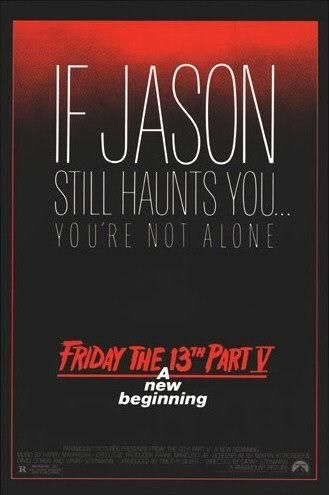
This is why today’s film, which is a perfectly enjoyable and adeptly made example of the slasher movie, is held in such low regard—not because of what it actually is—a fun rip-off of The Hidden—but because of what it isn’t—all Jason, all of the time.
Of course, I’m talking about:
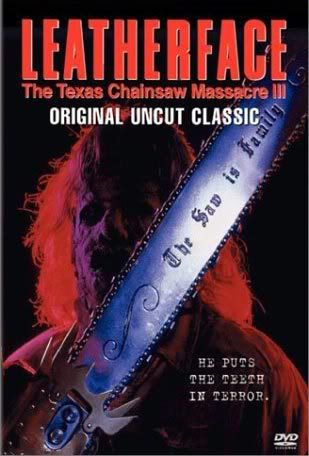 This wouldn't be the first time New Line purchased the rights to an apparently moribund horror movie franchise. In 1990 the studio had attempted to restart the inert Texas Chainsaw Massacre franchise with Leatherface: Texas Chainsaw Massacre III, but the film seemed to be cursed from its conception and failed to make an impact with horror fans, many of whom resented the changes the movie made to the previous film's characters and back story.
This wouldn't be the first time New Line purchased the rights to an apparently moribund horror movie franchise. In 1990 the studio had attempted to restart the inert Texas Chainsaw Massacre franchise with Leatherface: Texas Chainsaw Massacre III, but the film seemed to be cursed from its conception and failed to make an impact with horror fans, many of whom resented the changes the movie made to the previous film's characters and back story. 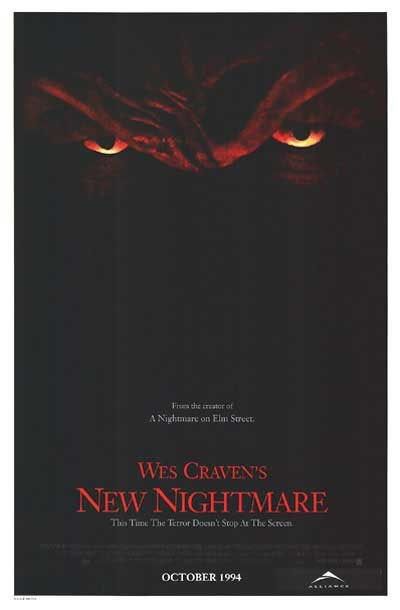
However the story of JGTH doesn’t end there. Despite all of the antipathy it earned upon its release, the film was notable for including a final shot that teased a confrontation that fanboys everywhere spent a decade demanding they be able to see, only to vehemently decry the result once it was given to them and wasn’t exactly what they wanted or expected.
In attempting to reinvent the franchise, the makers of JGTH, decided to do something at the beginning of the film all of their predecessors insisted on leaving to the end—they killed Jason (in so far as Jason can be killed). And not only did they kill him—in the words of the exalted critics of SCTV’s fabled “Prairie Film Report”—“They blew him up real good!”
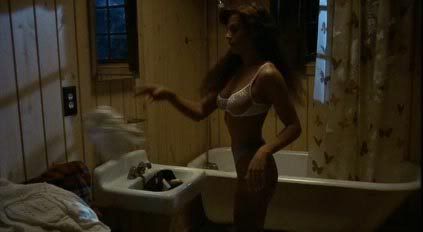 For it’s opening sequence alone the 9th Friday the 13th deserves to be held in much higher regard than it’s spiritual peer A New Beginning. Unlike the fifth film, which is so inept that it plays like a self-parody when it clearly isn’t, JGTH immediately establishes a sly self-mocking tone that it carries with it throughout its entirety.
For it’s opening sequence alone the 9th Friday the 13th deserves to be held in much higher regard than it’s spiritual peer A New Beginning. Unlike the fifth film, which is so inept that it plays like a self-parody when it clearly isn’t, JGTH immediately establishes a sly self-mocking tone that it carries with it throughout its entirety. 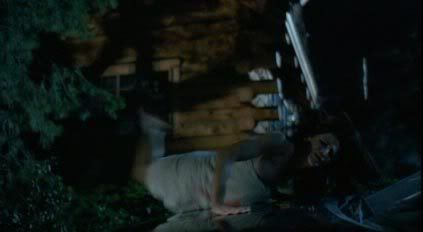
 In Jack Sholder's The Hidden, two police officers--one human, one alien--join forces to track down a psychopathic parasite that is able to fulfill its voracious physical and monetary desires by jumping into different human hosts (including--most memorably --a pre-Babylon 5 Claudia Christian). In JGTH, the evil spirit of Jason Voorhees remains alive in his evil black heart, which--after his decimation--is taken to the medical examiner who has been tasked to perform the autopsy on Jason's various remains. Unfortunately for the examiner Jason's evil is too great to be defeated for long and it compells the poor man to eat the pulsating organ, causing his body to be taken over by Voorhees' murderous psyche, which--like the parasite in the earlier movie--is able to jump into another person's body whenever the one it's currently in proves to be no longer desirable.
In Jack Sholder's The Hidden, two police officers--one human, one alien--join forces to track down a psychopathic parasite that is able to fulfill its voracious physical and monetary desires by jumping into different human hosts (including--most memorably --a pre-Babylon 5 Claudia Christian). In JGTH, the evil spirit of Jason Voorhees remains alive in his evil black heart, which--after his decimation--is taken to the medical examiner who has been tasked to perform the autopsy on Jason's various remains. Unfortunately for the examiner Jason's evil is too great to be defeated for long and it compells the poor man to eat the pulsating organ, causing his body to be taken over by Voorhees' murderous psyche, which--like the parasite in the earlier movie--is able to jump into another person's body whenever the one it's currently in proves to be no longer desirable.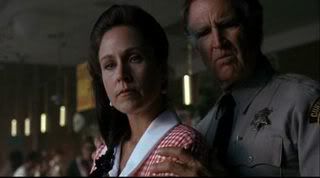
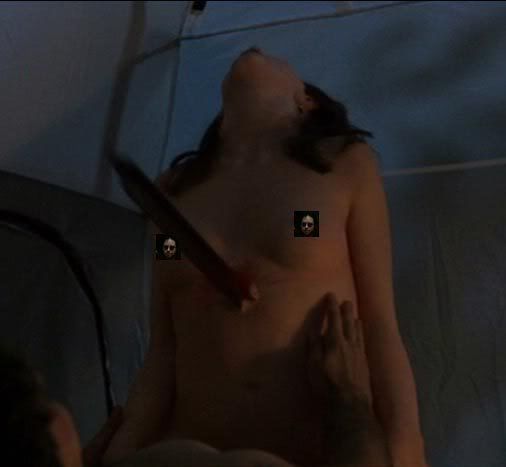
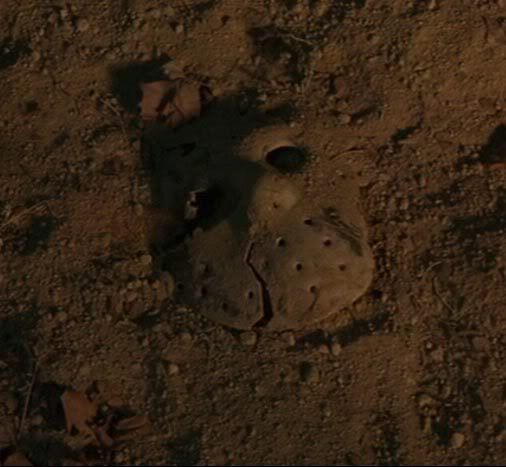
Repost: The Strange Tale of the Cute Girl With the Robot Brain
It has been a long while since I last saw a film so insane I felt immediately compelled to document its madness in excruciating detail here at the H of G, but a few nights ago I decided on a whim to pop in a disk I’d been sitting on since I picked it up in a boxed set last December and…well…here we are.
I hope you’re comfortable, because I don’t think this is going to be brief.
I got about halfway through the movie before I started debating with myself over whether what I was watching was a What Were They Thinking Movie (WWTTM) or a Bad Film I Love Anyway (BFILA). At first I was convinced it was the former, given the film’s wildly disparate tone and combination of seemingly mutually exclusive elements, but as I continued watching it occurred to me that with a better script, the story being told could have made for an admittedly bizarre, but still genuinely good movie, which put it firmly in the latter category.
More than any other era in filmmaking, the 1980s provided us with the greatest number of what I like to call Conference Room Classics. These are films that are so overtly contrived to appeal to as many viewers as possible that you can actually hear in your head the boardroom discussion between a group of coked up movie executives that brought them into existence as you watch them. Today’s subject is an archetypal example of this lamentable and unheralded genre and here is just a small snippet of the conversation I imagined as I watched the movie:
Studio Executive #1: So, Douchebag, I hear you picked up the rights to an interesting new novel. Tell us about it.
Studio Executive #2: Thanks, Asshole! It’s a great idea with plenty of potential. It’s about this kid who’s a super-genius.
Studio Executive #3: I love it!Studio Executive #2: Hold on, Shit-for-brains! I haven’t even gotten to the good part yet. So the kid is such a super-genius, his best friend is an adorable artificially intelligent robot he built himself.
Studio Executive #1: Wow. I think I just came in my pants! That sounds just like that Steve Guttenberg movie TriStar is making. They say it’s going to be a big hit!
Studio Executive #4: This sounds great! We need a good family comedy on our slate.
Studio Executive #2: You didn’t let me finish Dickface! This isn’t a family comedy! It’s a horror movie!
Studio Executive #1, 3 & 4: SAY WHAT?
Studio Executive #2: Y’see the super-genius kid is new in town because he’s such a super-genius he’s already enrolled at the local college, and he falls in love with the cute blond girl who lives next door.
Studio Executive #4: I like cute blond girls. Cute blond girls are good,
Studio Executive #2: So they become really good friends and everything seems like it’s all going to be happy and stuff, but then the robot gets destroyed by the crazy woman who lives across the street and the girl gets killed by her abusive alcoholic father.
Studio Executive #3: That’s sad.
Studio Executive #2: But the kid is such a super-genius he figures out that he can bring his friend back to life by implanting the same microchip that powered his robot into her brain.
Studio Executive #1: That makes sense!
Studio Executive #2: The problem is that when the girl comes back to life, she’s like a robot and doesn’t have a…whatayacallit…y’know that thing that makes people feel bad about the stuff they do….
Studio Executive #1. 3 & 4: (Long silence)
Lowly Assistant: A conscience?
Studio Executive #2: That’s it, Lowly Assistant! You’re fired! Now, she doesn’t have a conscience, so she goes around killing the people who did her and the robot wrong.
Studio Executive #3: That’s so scary!
Studio Executive #1: I just came and shit in my pants at the same time! Really! I’ll show you if you’d like!
Studio Executive #4: It’s got everything! The kids will like the cute robot, the teenagers will like the gore and the adults will like the emphasis on higher education.
Studio Executive #2: So I take it you guys want to make it into a movie?
Studio Executive #1, 3 & 4: FUCK YEAH!
Studio Executive #2: Great. I think we can get the guy who made Nightmare on Elm Street to direct it.
And they did.
Today’s film not only earns the title of the Second Worst Wes Craven Movie of All Time (with it being just narrowly beaten out by The Hills Have Eyes Part II), but it also earns the award for the Second Worst Horror Movie Script Ever Written By A Future Oscar Winner (with Brian Helgeland’s 976-EVIL taking the top spot in this case).It is, as the above dialogue would suggest, an odd hybrid of a horror movie without a moment of tension or suspense and a fanciful children’s adventure that contains far too much violence and bad language to be in any way appropriate for a younger audience.
The popular term in Hollywood for this kind of failed combination is a Feathered Fish—named so because the poor creature can neither swim nor fly and merely lies there on the ground, satisfying neither of the potential diners for whose palates it has been bred. For most folks these poor creatures are best avoided at all costs, but to us gourmands of misbegotten cinema, they are tastier than the finest high-priced Russian caviar and by that standard, today’s subject is easily worth $1000 an ounce.
I am, of course, talking about:
Now before I spank Craven too hard for his second biggest filmic fiasco, I should acknowledge some of the background history that mitigates his failure, even if just a little. By the time he got around to making this, his eighth official feature film (he had also directed four TV movies by then), he had truly been put through the show business wringer.
His first (credited) film The Last House On the Left was an enormously profitable hit, but it was so controversial and alienating that it took him five years before he got his next gig directing The Hills Have Eyes. It too was a hit, but his follow-ups Deadly Blessing and Swamp Thing (a comic book adaptation seriously marred by budget difficulties) failed to make a mark at the box office. As a result he was unemployed for two years before he finally got the chance to direct his original screenplay A Nightmare On Elm Street. The result was one of the most important horror films of the 80s, but his deal with New Line Cinema kept him from financially capitalizing on its success. To add insult to injury, not only was he denied a piece of the enormous franchise he created, but was left to fend for himself when another screenwriter accused him of plagiarizing Nightmare and took him to court.
Broke and in desperate need of a job, he agreed to make The Hills Have Eyes Part II, but wasn’t given a big enough budget to produce a complete film—a problem he solved by having nearly half the film consist of flashbacks to the original. With the case against him finally dismissed, he remained in dire financial straits and eagerly accepted the next job that was offered him. In this case it was his first feature film for a major studio (his previous efforts having all been made by smaller independent companies), which meant that for the first time in his career he had an adequate budget to work with, but also meant that he now had to deal with a level of creative interference he had never experienced before. Unused to dealing with the petty demands of egotistical, coked-out executives, Craven lost control of the project and did his best to give the suits the movie they all seemed to so desperately want.
And that’s the film for which I am about to rip him a new one.
As for the film’s soon-to-be-heralded screenwriter, I can’t provide a similar defense since I’m not as well versed in the background of Bruce Joel Rubin. I do know that this was the first produced screenplay for which he got sole attribution (he received a story credit for Natalie Wood’s last film Brainstorm), but I cannot tell you if its incompetence on virtual every technical and creative level was the result of his being a relative neophyte, a lazy hack or his craven desperation to please the clearly misguided folks signing his paychecks. Whatever the case, his second produced screenplay, Ghost, won him an Oscar, while his third, Jacob’s Ladder, resulted in a genuine cinematic classic, so—if anything—what you are about to see does prove that in Hollywood it’s always possible to bounce back from anything, no matter how dire it may seem at the time. And believe you me, after this movie was released things must have seemed pretty damn dire.
Now let us get on with the petty sarcasm!
Staying true to what we are about to watch for the next 90 minutes, Craven and Rubin manage to present us with a logical blunder in the film's very first scene, even before the credits have been allowed to roll. The film starts with a thief breaking into a car parked in front of grocery store, so he can help himself to the cash found inside the wallet left conveniently on the driver side seat. But before he can make his getaway, he's stopped by a mechanical hand that appears from the back seat and grabs him firmly by the throat. When we're given a glimpse of this unseen vigilante's POV, it becomes clear that we are dealing with some sort of mechanical automaton and not a one-armed man with the coolest 80s era prosthetic limb of all time. The thief escapes from the vehicle without the money, just as our protagonist and his mother--the car's owner--walk out of the store, carrying their purchases.
What, you ask, is so illogical about this? Lemme answer you by asking a question of my own....
How did Mom pay for the groceries if her wallet was in the car?
Now I suppose a creative person could come up with a dozen answers to this question, but my experience as a hack writer knows that the only one that matters is: Who cares! We need the wallet to be in the car, so the thief has something to steal! Now, one could respond to this by asking why the thief couldn't just try and steal the car itself, but once again the hack writer in me already knows the response: The robot we built would never have been able to grab the actor's throat if he was sitting in the front seat, so we had to have him steal something he could pick up in a much more technically convenient position.
One of the misconceptions among non-creative folks is the idea that logical errors happen in movies because no one involved in the production was smart enough to point them out at the time.
Nothing could be further from the truth.
I would say that about 90% of the time, the author of a work can successfully name every single logical inconsistency that appears in their finished work--to the point that they are able to point out examples no one else would ever catch.
Why then don't they correct these mistakes?
Mostly it's pure laziness (you have to remember that most folks become writers to avoid ever having to do real work), but in a lot of cases it's a matter of resigned pragmatism. Often correcting a mistake causes more problems than it actually fixes and it's better to just ignore the blunder and hope no one makes too big a deal out of it. Unfortunately, we now live in a world filled with millions of assholes like me who take a twisted sort of delight in making exactly that sort of deal out of them. Hell, I've just spent two paragraphs discussing the movie's most minor error in logic!
What am I going to do when the shit really hits the fan?
Back to the movie, after our hero and his mom return to their car, we see them interacting together as they drive to their new home. It's immediately apparent that Paul Conway (Matthew Laborteaux) is a smart kid who has a loving, close relationship with his foxy mother, Jeannie (Anne Twomey). When they finally arrive at their destination we get to see just how smart he is when we see the mysterious backseat passenger exit from the vehicle.
A genuine prodigy, Paul has built his best friend, BB, all by himself--an achievement made all the more amazing by the robot's sophisticated artificial intelligence, which stands lightyears away from anything that exists even today, 22 years later.
Hey! This raises an interesting question!
Where the Hell did Paul get the money to build BB?
By 1986 the home computer movement was in full swing, but the market was still decades away from creating affordable hardware with the processing power needed to create a genuine artificial intelligence. When you consider that a remote-controlled puppet designed to merely create the illusion of such an achievement would have cost the production at least $100,000 (and probably closer to double that), it wouldn't be unreasonable to suggest that in 1986 dollars, BB would have been a $10,000,000 investment (including both hardware and labour).
Now, I know you're thinking I'm going to far. "It's called the willful suspension of disbelief, buttmunch!" I hear you mutter to yourselves as the glow from your computer screen slowly gives you a strange new cancer that hasn't been identified yet, but let me defend my nitpickiness by arguing that this is a film that takes all notions of credibility and shoots them in the back of the head so it can go back to their house and sodomize their crippled grandmother.
And it is for that reason that I feel no guilt as I focus on every little nit that I find to pick. More than anything else, the depiction of BB is what is responsible for the film's odd contradictory tone. All of the scenes featuring the robot attempt to recreate the moments of patronizing faux-hilarity that are familiar to anyone who grew-up watching films like Unidentified Flying Oddball on The Magical World of Walt Disney and they bear no relationship to the nightmarish imagery that follow them.
Witness this typical example:
The first character we meet is the neighborhood paperboy, Tom "Slime" Toomey (Michael Sharett), who is plum amazed to discover a technical marvel as amazing as BB the yellow robot. I'm assuming that his odd nickname is a holdover from the novel, since it's an utter non sequitur in the movie. Next up is Dr. Johanson (Russ Marin), the neurosurgeon/professor who helped Paul get his scholarship to the university. You could be forgiven for assuming that Paul's creation of BB would make him a perfect engineering or computing student (in an age that predated robotics as a field of academic pursuit), but apparently his ability to program BB's A.I. comes from his nearly superhuman understanding of the human brain and not from his mad hacker skillz. And, finally, we have Samantha "Sam" Pringle (Kristy Swanson). The cute blond girl who lives next door, who has a painful secret (and, as Slimey so eloquently observes when Paul asks him about her, "great tits").
Just seconds after we're introduced to Sam, we get our first glimpse of her father, Harry (Richard Marcus), who even just standing at a distance in his doorway clearly looks like the possessive, abusive alcoholic he quickly proves himself to be.
Equally detestable is Elvira Parker (Anne "Honest To Goodness Oscar Nominee" Ramsey), the crazy old woman whose yard is protected by a six-foot chain link fence that is kept shut via a combination lock and who greets any potential intruders with her trusty shotgun.
And just to up the asshole body count to a more satisfactory number than 2 we have Carl (Andrew Roperto), a neighborhood ruffian whose crotch learns the hard way what happens to folks who mess with BB's creator.
Now that we've been properly introduced to all of the film's principal characters, the plot can start in earnest. Rubin sets it in motion by having Sam appear in Paul's doorway with a gift of snack cakes. Despite appearing to be eager to make a new friend, she is visibly anxious the whole time she's there, which makes sense when her psychotic father comes to pick her up. Of all the stereotypical characters in the film (and they're all stereotypical characters) Sam's dad is easily the most absurdly hackneyed. Hell, BB is given more shading and complexity than he is. One wonders if Craven felt he was showing restraint by not having drool dabbed around Marcus' lips before each shot, since he was more than willing to do everything else he could to sell the idea that Harry Pringle is a bad, bad man.
Speaking of which, that brings us to the first of the film's three dream sequences. Now, I realize most people who've seen Deadly Friend will insist that there are only two nightmares in the film, but I also count the film's ending as a dream sequence, because that's the only possible way it makes a lick of sense.
But I'm getting ahead of myself.
Repost: Evil Laugh
Make no mistake about it—the Internet Movie Database is one of the most depressing websites you could ever possibly visit. I’m sure to most people it is simply a handy reference tool capable of ending a nagging bout of unresolved trivia within a few short minutes, but to my eyes it has always served as a catalogue of broken dreams and unmet promises—the single most powerful example of the heartbreak inherent in attempting to live a show business existence. Don’t believe me? Well, let’s take a quick look at the IMDb page dedicated to former 70s/80s teen idol Scott Baio. Like so many IMDb pages, it starts off promisingly with a TV movie directed by the man who would later bring George Lucas’ vision of primal teddy bears to life, continues on with a cult classic all-kids musical co-staring a young Jodie Foster, takes a bit of a detour with a rare Garry Marshall 1970s sitcom failure and some random guest spots, before jumping into the big time with the role that made him a star—Chachi on Happy Days. During that same period you also can find the awesomeness that is a certain “lost” 1979 roller disco classic, another cult classic starring a slightly less-young Jodie Foster and one of the more memorable “teen message” TV movies from that period.
Don’t believe me? Well, let’s take a quick look at the IMDb page dedicated to former 70s/80s teen idol Scott Baio. Like so many IMDb pages, it starts off promisingly with a TV movie directed by the man who would later bring George Lucas’ vision of primal teddy bears to life, continues on with a cult classic all-kids musical co-staring a young Jodie Foster, takes a bit of a detour with a rare Garry Marshall 1970s sitcom failure and some random guest spots, before jumping into the big time with the role that made him a star—Chachi on Happy Days. During that same period you also can find the awesomeness that is a certain “lost” 1979 roller disco classic, another cult classic starring a slightly less-young Jodie Foster and one of the more memorable “teen message” TV movies from that period.
Unfortunately it soon goes downhill from there, beginning with the wretched feature film that utterly failed to make him a movie star and the spin off that no one asked for. Then comes Charles in Charge, a truly terrible sitcom with an opening theme song that was a thousand times more memorable than any one of its episodes (with the possible exception of the one where he dated Samantha Fox). Around that same time he managed to appear in some movies you’ve never heard of and played a pig in Irwin Allen’s highly unfortunate star-studded two-part adaptation of Alice in Wonderland.
After two years of not appearing in front of a camera, he then returned to television as a co-star on a medically themed Murder She Wrote rip off, but when that joyride ended he managed only to snag the occasional sitcom guest spot and the kind of independent movie role that forced him to play characters named Zack Ramses and co-star with fellow sitcom has been Todd Bridges , while also occasionally directing episodes of the least-watched sitcoms in the history of the format. Finally, in 2004 we see his career reach its lowest point with a gig playing second banana to a crew of creepy digitally manipulated talking babies. But all was not without hope, since this was followed the next year by a four-episode arch on a critically acclaimed sitcom that was only too happy to stunt cast him as a successor to his former onscreen mentor.
That said, this brief victory was immediately undone by the two clearest signs that a celebrity’s career has reached its end—a depressingly self-deprecating cameo as himself in a major box office flop and a reality TV series based on exploiting his famous off screen behaviour.
In just one document we can watch the rise and decline of this man’s professional life—from successful kid actor to teen superstar to TV hack to pop culture punchline—and appreciate the cruelty that fate can play with those who merely want to entertain us. But this alone does not prove my contention that the IMDb is one of the most depressing websites known to man. No, what truly makes my thesis incontrovertible is the fact that Baio’s page actually serves as the documentation of a Hollywood success story.
By the standards of his business, Scott Baio had an amazing ride, the likes of which 99% of his professional peers will never experience themselves. Every day people demean and debase themselves in the hope that someday, with the right kind of luck, they might be blessed with a career that sucked ten times as much as Baio’s did. For proof of this you only have to look at the IMDb page of Steven Baio, Scott’s brother of indeterminate age.
Now this is what I’m talking about when I refer to the inherent pathos of the Internet Movie Database—a page filled only with a handful of sparsely divided nepotistically-achieved acting, writing and producing credits and the lone accomplishment of a truly terrible 1988 slasher movie that managed to be made during that brief period in the 80s when the demands of the home video market made it possible for anything ever recorded on film to make it to the hands of unwary viewers.
I am, of course, talking about:
The genesis of this frequently excruciating exercise in incompentent filmmaking came about when Steven Baio, fresh from a couple of guest spots on Happy Days and Joanie Loves Chachi, met Dominick Brascia, who had just set the world aflame with his vivid portrait of a fat, chocolate-eating retard in Friday the 13th Part V: A New Beginning , in an acting class.
Acting classes serve several very important purposes in Los Angeles. The first is that they keep out of work actors employed through the exploitation of actors even more out of work than they are. The second is that they allow folks who can't even get an audition, much less a role, the illusion of professional progress. And the third is that they enable potential soulmates like Baio and Brascia to get together and collaborate on screenplays designed to elevate them to the heights of show business stardom.
This is why acting classes are evil and should be outlawed for the sake of our common humanity.


Having bonded over their mutual homesickness for New York, Baio and Brascia first dreamed of making a comedy in the same vein of the classic Abbott & Costello films of the 40s, which they creatively dubbed Two Guys From Brooklyn. Unfortunately despite the collective resources that came from being Chachi's homely brother and the guy who played Young Man Buying Ice Cream in the film that completely failed to make Jim Carrey a movie star, the two young filmmakers were only able to raise an infinitesimal fraction of the money they needed to make their dream project a reality.
Undaunted, the two of them decided to take the money they had managed to raise from other wannabe actors and their parents and use it to make the same kind of movie that had provided Brascia with his largest role to date. Both of them worked on the screenplay (although the IMDb incorrectly credits the work solely to Baio) and though Brascia had written a key role with himself in mind, he elected to not appear in front of the camera when it was decided that he would direct the project.
Blessed with a generous seven day shooting schedule and a cast filled with other acting class "actors", they worked their asses off and got the script on film. The result was truly terrible, but it made it to video and would forever remain the crowning achievement of their Hollywood experience.
That they were able to do this, when so many other of their fellow acting students didn't, makes Evil Laugh another counter-intuitive success story. Just not an artistic one.

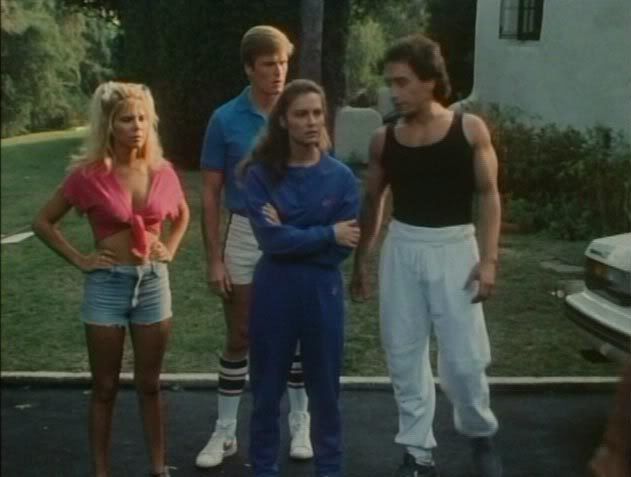
But the truth is that it is not the misguided hopes or creative incompetence of Baio and Brascia that makes the watching of Evil Laugh such an unusually melancholic experience. No, the fault for that lies directly in the lap of the actress who portrays Connie, the film's requisite Final Girl.
In 1988 Kim McKamy was a 29 year-old transplant from North Carolina trying to make it as an actress in Los Angeles. Since arriving in Hollywood she had managed to book some supporting roles in a handful of extremely low budget direct-to-video horror movies and a small bit part in the third film of a franchise based around the adventures of a young former streetwalker. Evil Laugh would be her fifth film and her largest role to date.
Like all serious actresses who dream of future stardom, McKamy had been careful to avoid roles that called for nudity and when Baio and Brascia asked her to get naked in a shower scene at the end of their film, she balked and insisted that they hire a body double. The woman they hired proved, predictably, to be considerably better endowed than she was, which meant she had to wrap a towel around her shoulders during the scenes she appeared in a chaste swimsuit, lest her true dimensions give the upcoming deception away.
Given a script that allowed her to show off all of her emotive skills, McKamy gave it everything she had in Evil Laugh, but rather than vindicate her years of struggle the results only served to prove that for all of her enthusiasm and desire, she simply wasn't a good actress. Nearing thirty and with the kinds of parts she had played drying up as the slasher cycle came to its inevitable end, she found herself unemployed and at what most would conclude was the end of her dream.
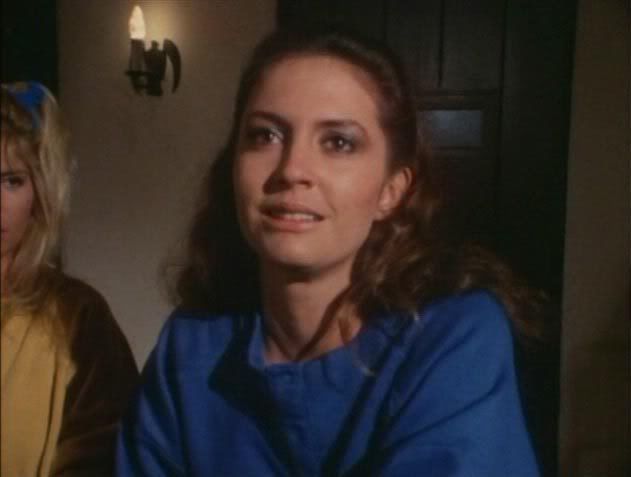
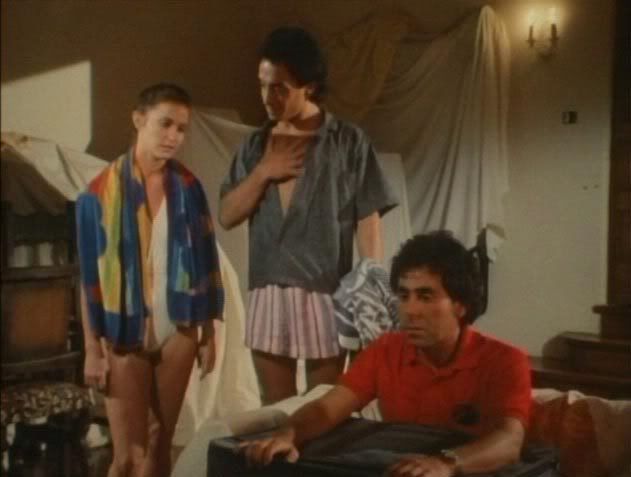
But then any student of Hollywood can tell you that it is a business in which ambition is frequently much more important than ability. Despite her obvious limits as an actress Kim McKamy still very much wanted to perform and be a star, so when the mainstream industry turned its back on her, she decided to go somewhere else where her efforts would be much more greatly appreciated.
Two years after she appeared in Evil Laugh, McKamy's face and body started appearing on the shelves of a completely different section of the video store than where her previous films were usually found. With the change in location also came a change in name. Billed as Ashlyn Gere, she had made the leap to a genre of film where merely showing her breasts was the least of her concerns. Now gifted with a pair of custom-made mammaries that must have made her former body double weep with envy, she would never have to wear a towel around her shoulders ever again.
The difference couldn't have been more dramatic. While Kim McKamy struggled to reach even the lowest rungs of the show business ladder, Ashlyn Gere instantly climbed to the top of its less reputable alternative, where she found not only the fame she desired, but also an unheard of degree of respect and recognition. In "real" movies her performances seemed overly mannered and contrived, but in the world of adult cinema they were considered award worthy. In 1993 and 1995 she won a total of four acting awards at the pornographic equivalent of the Oscars, and that first year was named the first ever "Female Performer of the Year".
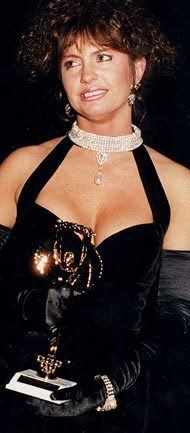
In the years that followed she became the extremely rare adult film actress who was allowed the opportunity to appear in guest roles on network television, thanks to the efforts of the writing/producing team of Glen Morgan and James Wong. With their help she enjoyed featured parts on the The X-Files, Millennium and Space: Above and Beyond, as well as roles in their films The One and Willard
And, in a fitting irony, the actress who had insisted on having a body double in Baio and Bruscia's little slasher movie, herself became a body double for Sharon Stone and Demi Moore in Basic Instinct and Indecent Proposal--the two most successful projects she would ever be associated with in a career that finally ended in 2003, when she left Ashlyn Gere behind and moved to Texas to become a real estate agent.
Having found a way to achieve the fame and recognition she always wanted, Kim McKamy's IMDb page also represents another Hollywood success story, which--along with the other examples I've provided in this post--begs the question: If Hollywood successes are this pathetic and depressing, then what the holy fuck are actual failures like?

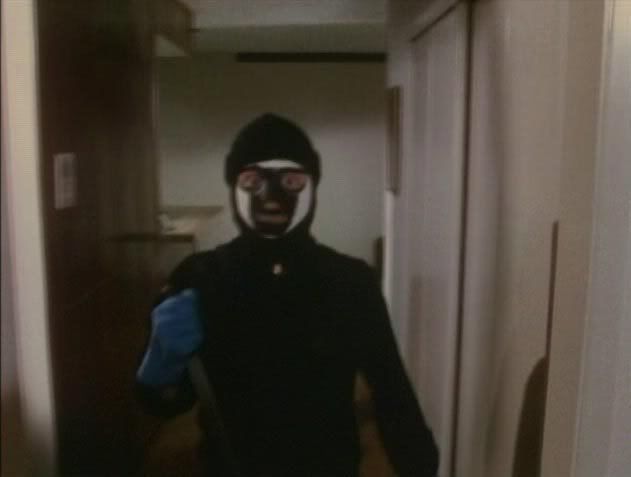
I suppose that before I end with the usual Slasher Movie Statistics, I might as well spend at least a paragraph discussing the actual film. It sucks pretty damn hard. It's not quite as unbearable as Girls Nite Out, but it's close. Badly shot, directed, written and acted, the film's only real distinction is the inclusion of a character named Barney who manages to survive the initial ordeal entirely through the exploitation of his knowledge of horror movies--a satiric nod to the cliches of the genre that predated Scream by eight years. That said, the actor who plays the character is extremely irritating and the poor execution of the conceit completely undoes its initial cleverness. In the end the film definitely serves as a much better example of the terrible realities of life on the low end of the Hollywood food chain than it does as an entertaining slasher movie.
Slasher Movie Statistics Body Count: 11 (8 men/3 women
Shower Scenes:1
Instances of Nakedity: 2 (3 if you're willing to count man ass, which you are entirely free to do)
Instances of Blatant Homoeroticism Played For Laughs of: 2
Instruments of Death: Machete, electric drill, ax, bare hands, microwave, hand gun and scissors
Instances of Unintentional Cannibalism: 1
References to Pot: 0
Amount of Time Required to Correctly Identify Killer: At a certain point midway through the film there is only one character left who could have conceivably been around to commit all of the murders we have seen thus far. They are the person behind the mask.
Truly Terrible Pop Songs Repeated Throughout The Film Ad Naseam: 2
Cheesy References to Other Horror Movies: Too many to keep track of thanks to the Fangoria reading Barney.
Utterly Pointless Trivia #1: While Kim McKamy turned to porn after Evil Laugh, her blond co-star Jody Gibson went even a step higher (or lower, depending on your point of view) when she filled in the void created by the arrest of Heidi Fleiss to become Los Angeles' number one madam.
Utterly Pointless Trivia #2: Tony Griffin, the actor who spends a great deal of the movie's run time wearing a studded bondage collar, is the son of the recently deceased talk show host, game show impresario and famed crooner of "I've Got A Lovely Bunch of Coconuts", Merv Griffin.
Final Girl Rating: 1 (out of 10)
Repost: Fumetti Theatre
Repost: The Life After
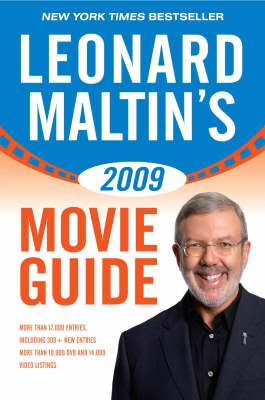 In a past post I described (at length) the reasons behind my firmly held belief that the IMDb is the most depressing website to be found on the internet, in so far as it serves as a cold and disheartening record of thousands of broken dreams. But despite this harsh fact, I often find myself lost in its virtual pages, inevitably enjoying some new and exciting discovery in each filmography I come across, no matter how obscure their subject may be. The sensation is identical to the feeling I had as a kid reading those thick Leonard Maltin Movie Guides from cover to cover as if they were the most absorbing novels ever written. With each new name and title I find another opportunity to increase my appreciation of the art, which I am grateful for after 20+ years of cinematic study. Thanks to the IMDb I have unearthed many treasures that might have remained buried had I not first found out about them within its online pages.
In a past post I described (at length) the reasons behind my firmly held belief that the IMDb is the most depressing website to be found on the internet, in so far as it serves as a cold and disheartening record of thousands of broken dreams. But despite this harsh fact, I often find myself lost in its virtual pages, inevitably enjoying some new and exciting discovery in each filmography I come across, no matter how obscure their subject may be. The sensation is identical to the feeling I had as a kid reading those thick Leonard Maltin Movie Guides from cover to cover as if they were the most absorbing novels ever written. With each new name and title I find another opportunity to increase my appreciation of the art, which I am grateful for after 20+ years of cinematic study. Thanks to the IMDb I have unearthed many treasures that might have remained buried had I not first found out about them within its online pages.
But this alone is not the only reason why I cannot stay away from the site for more than a few days (or hours) at a time. The other reason, though, is directly tied into the aspect of the site that accounts for its melancholy aftertaste. The more pages you read, the more often you find yourself confronted by the title at the top of each of its subjects’ resumes. Depending on who that subject is this first title could merely be the most recent of their projects and will soon find itself buried under future endeavors, but more often than not this first entry serves as a monument to the end of a person’s film and television career. Beside that title is a date and with that date you can measure the length of time that passed since its subject ceased to be an actor/director/writer/producer/whatever and went on to live as a real, ordinary, average, not-at-all-special human being.
It’s this undocumented period of time that fascinates me more than I can describe. What has this person done in the 20 years that passed since the two-line bit part on Night Court that ended their career? Have they accomplished anything? Are they happy? Filled with regret? Does anyone in their current lives know or appreciate who they once were? Do they want them to?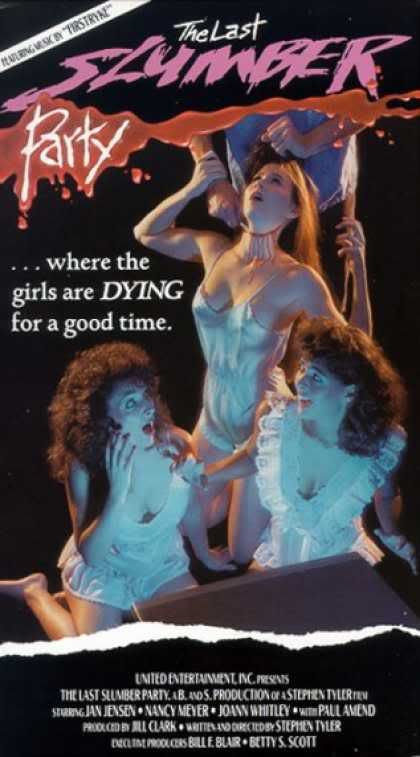 These last two questions are especially intriguing when you look over the pages of people who were involved in the less respectable areas of the industry. One has to wonder, for example, if anyone involved with The Last Slumber Party is apt to mention their participation in that monstrosity at every available opportunity or if they (much more wisely) live in constant fear that someone they know might stumble upon the film and discover their deep, dark, terrible secret. In the past, keeping such a skeleton hidden in your closet might not have been difficult, but in the age of Google all of our skeletons are becoming a lot harder to hide.
These last two questions are especially intriguing when you look over the pages of people who were involved in the less respectable areas of the industry. One has to wonder, for example, if anyone involved with The Last Slumber Party is apt to mention their participation in that monstrosity at every available opportunity or if they (much more wisely) live in constant fear that someone they know might stumble upon the film and discover their deep, dark, terrible secret. In the past, keeping such a skeleton hidden in your closet might not have been difficult, but in the age of Google all of our skeletons are becoming a lot harder to hide.
I write this because I just spent a somewhat ambivalent 90 minutes watching a long-forgotten mid-70s curiosity entitled Chesty Anderson USN. For fans of such cinema, its significant only as the second—and last—film of beloved Russ Meyer discovery, Shari Eubank, whose dual role in SuperVixens instantly earned her a kind of b-movie immortality that can be considered either a blessing or a curse depending on the feelings of the individual it’s imposed upon.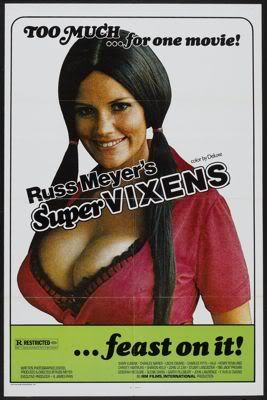 While Meyer’s best film remains Beyond the Valley of the Dolls (despite what some fans of Faster Pussycat! Kill! Kill! may foolishly claim), a lot of the credit for its success can be given to his screenwriter Roger Ebert (yes, that Roger Ebert) and especially—in my opinion—the film’s composer Stu Phillips (whose songs are likely to remain with you longer than the any of film’s colourful images). SuperVixens, on the other hand, is pure unfiltered Meyer (its final opening credit reads “Written, Photographed, Edited, Produced and Directed by RUSS MEYER”) and for that reason has always struck me as his most important film—the one for which his reputation as a genuine softcore auteur became wholly deserved.
While Meyer’s best film remains Beyond the Valley of the Dolls (despite what some fans of Faster Pussycat! Kill! Kill! may foolishly claim), a lot of the credit for its success can be given to his screenwriter Roger Ebert (yes, that Roger Ebert) and especially—in my opinion—the film’s composer Stu Phillips (whose songs are likely to remain with you longer than the any of film’s colourful images). SuperVixens, on the other hand, is pure unfiltered Meyer (its final opening credit reads “Written, Photographed, Edited, Produced and Directed by RUSS MEYER”) and for that reason has always struck me as his most important film—the one for which his reputation as a genuine softcore auteur became wholly deserved.
Driven by a cartoonish energy perfectly matched by the comic book bodies of its heroines, SuperVixens flirts with self-parody but manages to remain true to itself, unlike his subsequent efforts Up!, Beneath the Valley of the UltraVixens and the released-even-though-it-was-obviously-never-finished-and-wouldn’t-have-made-sense-even-if-it-had-been Pandora Peaks (a project whose failure can be excused by the Alzheimer’s that was slowly wrecking Meyer's mind as he very-slowly worked on it) all of which seem desperate and uninspired in comparison.
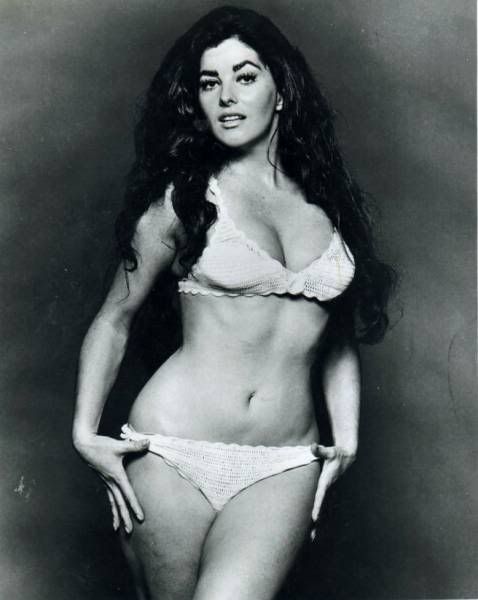 That said, there’s another reason SuperVixens satisfies more than most of Meyer’s other films. According to Jimmy McDonough’s biography of the director Meyer was introduced to a 28 year-old dancer named Shari Eubank by his friend and occasional star Haji, who had worked with her at a club called The Classic Cat and later said, “She was a damn good actress and she didn’t even know it.” Meyer was instantly smitten and for good reason. Not only did she have the kind of figure that had made his films famous, but unlike his previous and future discoveries such as Tura Satana, Erica Gavin, Raven De La Croix and Kitten Natividad, Eubank exuded a classic wholesomeness almost completely absent from his oeuvre. For this reason it seems strange that Meyer originally hired her to play the part of SuperAngel—the film’s representation of female power at its worst—and gave the part of Angel’s virtuous opposite, SuperVixen, to his then-wife Edy Williams--quite possibly the least wholesome actress of the era.
That said, there’s another reason SuperVixens satisfies more than most of Meyer’s other films. According to Jimmy McDonough’s biography of the director Meyer was introduced to a 28 year-old dancer named Shari Eubank by his friend and occasional star Haji, who had worked with her at a club called The Classic Cat and later said, “She was a damn good actress and she didn’t even know it.” Meyer was instantly smitten and for good reason. Not only did she have the kind of figure that had made his films famous, but unlike his previous and future discoveries such as Tura Satana, Erica Gavin, Raven De La Croix and Kitten Natividad, Eubank exuded a classic wholesomeness almost completely absent from his oeuvre. For this reason it seems strange that Meyer originally hired her to play the part of SuperAngel—the film’s representation of female power at its worst—and gave the part of Angel’s virtuous opposite, SuperVixen, to his then-wife Edy Williams--quite possibly the least wholesome actress of the era.
But then Williams decided she wanted to be recognized as a serious actress and would no longer appear naked on film (a career choice she would reverse a few years later when it became abundantly evident no one would hire her for any other reason). Unable to find a suitable replacement, he decided Eubank could play both roles—a choice made out of desperation that accidentally gave the film a bit of unintended thematic depth and which also made the character infinitely more sympathetic.
For a neophyte actress, Eubank proved remarkably adept in both roles. If her SuperAngel sometimes seems a bit over-the-top, it’s always to the film’s benefit and perfectly in keeping with Meyer’s manic style. As a character, SuperAngel is a broadly drawn representation of the worst kind of woman—supremely narcissistic, lazy, unsupportive, selfish and jealous—yet Eubank is able to show how she gets away with it with a single innocent look (it doesn’t hurt that the look just happens to be perched on top of that body).
In a weird way, casting Eubank as SuperAngel works against the film in that when she finally pushes a man too far, her violent comeuppance lacks the sense of justice Meyer pretty obviously wanted to convey. Many commentators have expressed offense over the scene where policeman Harry Sledge (Meyer regular and well-known character actor Charles Napier) is driven to kill her after she cruelly mocks his inability to get an erection in her presence (“Not ready? With my beautiful body? You got a lot of nerve buster telling me you’re not ready!”), and while the scene is wildly over the top and does border on the wrong side of misogynistic, I believe this has a lot to do with the fact that even though SuperAngel the character isn’t sympathetic, Shari Eubank the actress is, and it’s painful to see her suffer in such a violent way. Such is her presence in the film, the thought of her no longer being in it feels like a violation and it was only through happenstance that this potential mistake managed to be corrected. Had Edy Williams been willing to take her clothes off for her husband, SuperVixens would have ended being a very different (and most likely unsatisfying) film.
Unlike SuperAngel, the role of SuperVixen didn’t require as much effort from the actress. “Vix” (“As [her] friends call [her]”) is a sweet, hard-working young widow whose gas station/diner is literally an Oasis for Curt Ramsey, the film’s hapless and harried male protagonist. Though their onscreen courtship isn’t given much screen time and basically consists of the two of them cavorting nakedly in the wild, their relationship is easily the sweetest and most romantic in all of Meyer’s films—a fact due as much to the performers as any effort from the director.
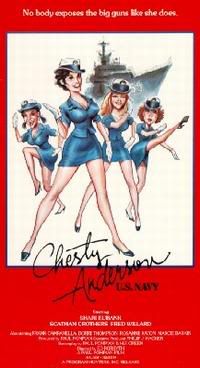 It’s unfair, however, to suggest that Eubank’s success in the film is based entirely on her own charisma. Meyer’s contribution to her iconic performance is made evident by even a single viewing of the only other film she appeared in, the above-mentioned Chesty Anderson USN, in which she flounders under the weight of a poorly-written role in a badly-directed movie. For those of you who look to titles as a way to judge whether or not a film is right for you let the example of Chesty Anderson USN serve as fair warning of your folly.
It’s unfair, however, to suggest that Eubank’s success in the film is based entirely on her own charisma. Meyer’s contribution to her iconic performance is made evident by even a single viewing of the only other film she appeared in, the above-mentioned Chesty Anderson USN, in which she flounders under the weight of a poorly-written role in a badly-directed movie. For those of you who look to titles as a way to judge whether or not a film is right for you let the example of Chesty Anderson USN serve as fair warning of your folly.
Let’s start with that Chesty part.
“Now,” you must be thinking, “any movie that goes to the trouble of advertising it’s heroine’s pulchritude in the title must surely be a sexy romp filled to the brim with enticing female nudity.”
WRONG!
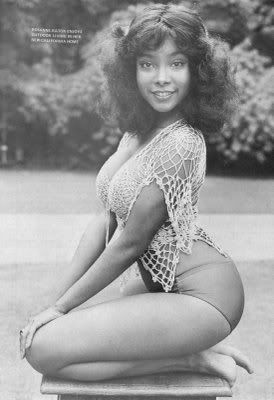 Despite its featuring a cast Meyer himself would be proud of [joining Eubank are such shapely actresses as Rosanne Katon, Dorrie Thompson, Dyanne “Ilsa” Thorne, Joyce Gibson (aka Joyce Mandel) and—in a wordless cameo as a gangster moll—fellow SuperVixens alum, Uschi Digard], the amount of actual nudity seen in the film clocks in at around 30 seconds. The effect is not dissimilar to casting Sylvester Stallone, Arnold Schwarzenegger, Bruce Willis, Steven Segal, Jean Claude Van Damme, Charles Bronson, Chuck Norris, Jackie Chan, Vin Diesel, Jet Li, Nicholas Cage and Sean Connery in a remake of 12 Angry Men. As cool as it may seem for the first ten minutes, at a certain point you realize that they’re really just going to talk for the whole movie and a certain galling disappointment quickly begins to set in.
Despite its featuring a cast Meyer himself would be proud of [joining Eubank are such shapely actresses as Rosanne Katon, Dorrie Thompson, Dyanne “Ilsa” Thorne, Joyce Gibson (aka Joyce Mandel) and—in a wordless cameo as a gangster moll—fellow SuperVixens alum, Uschi Digard], the amount of actual nudity seen in the film clocks in at around 30 seconds. The effect is not dissimilar to casting Sylvester Stallone, Arnold Schwarzenegger, Bruce Willis, Steven Segal, Jean Claude Van Damme, Charles Bronson, Chuck Norris, Jackie Chan, Vin Diesel, Jet Li, Nicholas Cage and Sean Connery in a remake of 12 Angry Men. As cool as it may seem for the first ten minutes, at a certain point you realize that they’re really just going to talk for the whole movie and a certain galling disappointment quickly begins to set in.
And I suppose you’re now thinking, “Okay, so there ain’t much sex. At least the USN tells us we’re about to see a fun service comedy in the vein of Buck Privates, Stripes or In the Army Now.”
Though the film’s heroines are portrayed as being WAVES, their service in the military has as much impact on the plot as a butterfly flapping its wings in China does on the overall future of mankind. Had the filmmakers instead found cheap and easy access to an abandoned hospital and a trunk full of old nurse costumes, the film could have been turned into Chesty Anderson RN with literally ten minutes worth of script revision.
But then if Chesty Anderson USN isn’t a sexy military romp, what the hell is it?
I’m not sure I should answer that question, since doing so would require me to spend more time thinking about its plot than the filmmakers ever did. Beyond the criminal lack of nudity, the most frustrating aspect of the film is its shocking lack of urgency. Near the beginning of the film Chesty’s younger sister is kidnapped and killed by the mob to stop her from ruining the career of her old boss, a corrupt, cross-dressing senator, and the subsequent investigation into her disappearance that then dominates the rest of film is given all of the gravitas of a search for a Jackson Five album needed for a sorority party scavenger hunt.
The blame for this rests on the shoulders of director Ed Forsyth who was not only incapable of handling the script’s bizarrely disparate tones, but was also clueless when it came time to direct his cast. As memorable as Eubank was in her first film, here she comes off as lifeless and flat (emotionally if not physically). She never seems that worried about what happened to her sister and shows absolutely no signs of anger or grief when she finally uncovers the truth.
Her male co-stars fare little better. Recognizable character actor Stanley Brock’s performance (seen here with Dyanne Thorne) as the lecherous doctor who orders the WAVES to strip to their waist (which in this case means taking of their shirts, but not their bras) no matter what their complaint would have been embarrassing on a vaudeville stage in 1926, much less in a movie made half a century later.
Scatman Crothers (billed here as Scat-Man) is a long way away from The Shining, but he only appears in one--unnecessary--scene, while the usually brilliant Fred Willard is saddled with the lame heroic boyfriend role and is given zero opportunity to showcase his tremendous comic talents.
The only performers who come off well are Katon (who in 1978 would become Playboy’s Miss September and in that capacity would go on to appear in the third episode of a certain variety show), who manages to take on the sassy black mama role without making her character seem like a tired stereotype, and Marcie Barken , whose turn as the trampy, flat-chested redhead earns the film its only real laughs.
Still, as bad as the film may be it is only a footnote in the brief career of its star. Unlike 99% of the folks whose careers are documented on the IMDb, Shari Eubank earned true cinematic immortality and lives on in the memories of all those who’ve seen her first film.
After Chesty Anderson USN was released in 1976, the 30 year-old actress (who others described as sensitive and naïve), gave up on show business and eventually returned to her hometown of Farmer City, Illinois, where she had once been a cheerleader and the homecoming queen. In the intervening decades it was rumored she’d gotten a degree in Education and taught Drama and English in her hometown’s small school system. Now, thanks to Google and the increasing necessity for all institutions to be online, rumor has become fact. All those fans who want to know what SuperAngel/SuperVixen looks like today, merely have to visit the staff section of the webpage devoted to Farmer City’s Blue Ridge Junior High.
And some may be happy to leave it at that, but I suspect many will be driven to distraction by the questions this raises. Farmer City is a small community, so it’s unlikely her acting career has ever been a secret, but there would have been a period before home video where her appearance in a Russ Meyer film would have only been an unprovable legend among her students:
“Hey, did you hear Ms. Eubank was in a porn movie?!?!”
“No way!”
“It’s true! My dad says he saw it. She was naked and everything!”
“Your dad’s a liar.”
“Is not! Billy’s dad says he saw it too.”
“Really?”
“Uh-huh!”
“What’s it called?”
“I dunno. Something like Wonder Boobs, I think….”
Fast forward a decade later:
“You’ve got to come over to Billy’s place!”
“Why?”
“He just got back from a trip to his cousin’s in Chicago and he brought something back!”
“What?”
“It’s a copy of that porno Ms. Eubank was in!”
“No way!”
“Yeah, his cousin has all of these movies and Billy recognized the title.”
“Has he watched it?”
“Only like a dozen times!”
“She’s really naked in it?”
“Really, really naked!”
Fast forward to today:
“Let’s Google Ms. Eubank.”
“Okay. What’s her first name, again?”
“I think it’s Shari.”
“Okay, here we go.”
“Holy shit! Are those her boobs?”
“I love the internet.”
In all seriousness, it is virtually impossible for anyone with a single wit’s worth of imagination to not wonder how they would have reacted to the knowledge that their junior high school language arts teacher was once the buxom star of one of the best softcore movies ever made. And those of us blessed with even more imagination than that cannot help but go on to ponder what it must have been like to be that junior high school language arts teacher whose interesting former career is inevitably discovered each year by a new crop of hormone-addled students.
And with this being just one untold story hinted at in the IMDb, you can understand why it’s difficult for me to stay away from its depressing online pages for any length of time. The sadness they sometimes make me feel being nothing compared to the wonderful curiosity they inspire.
